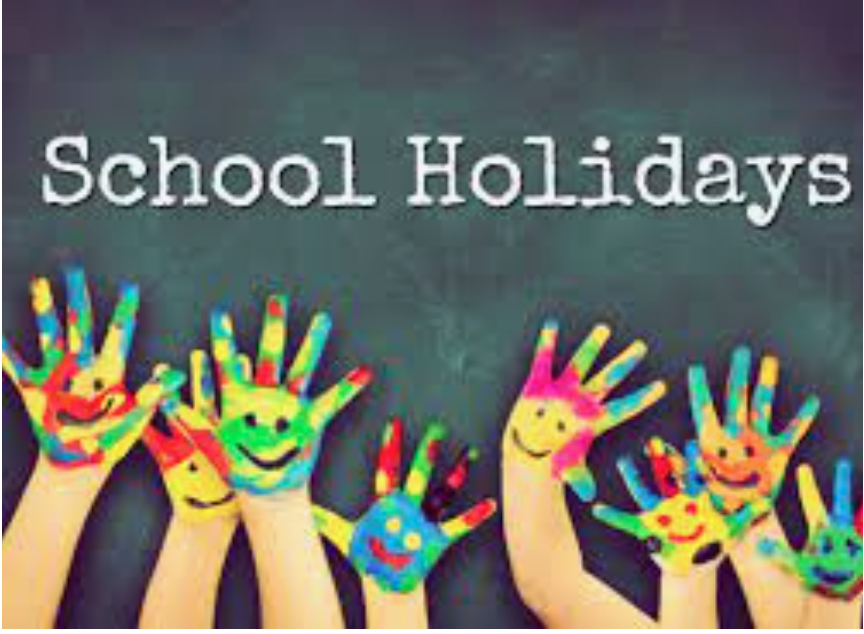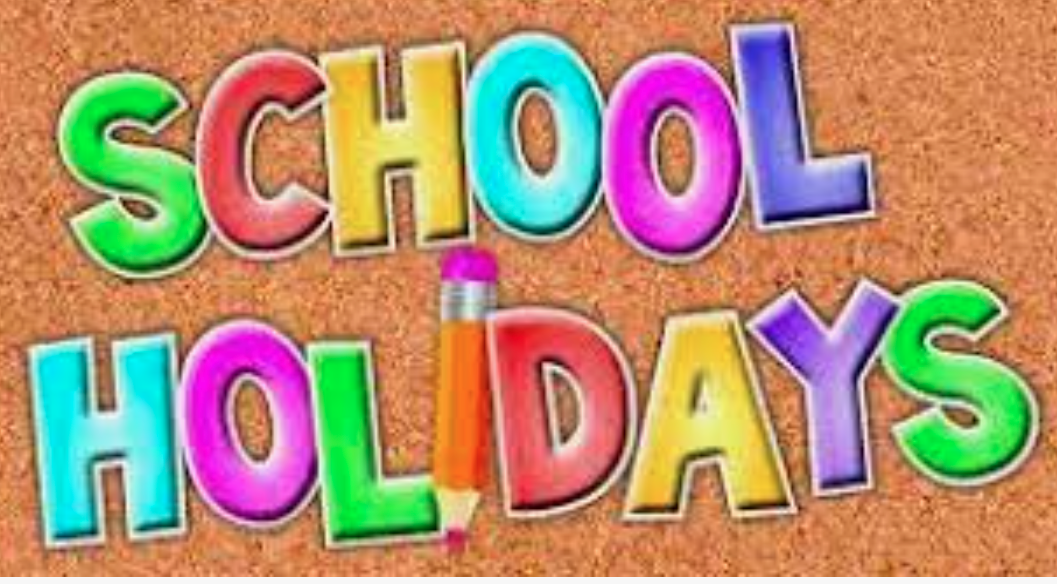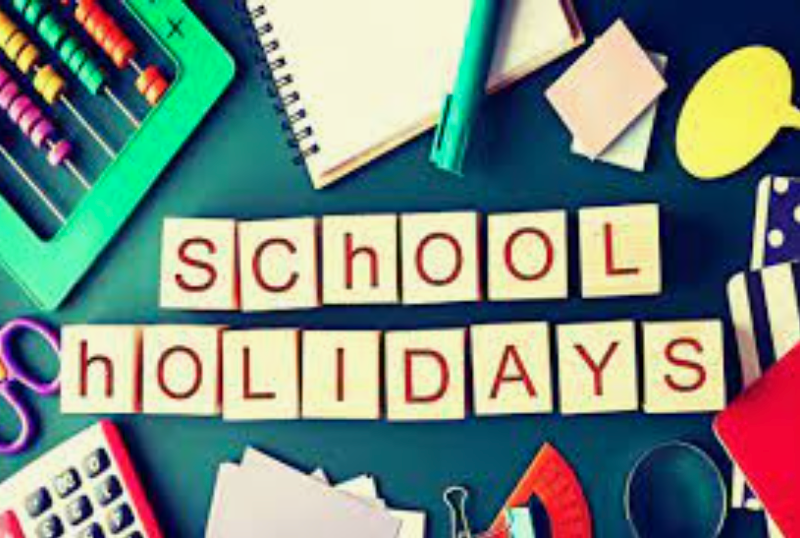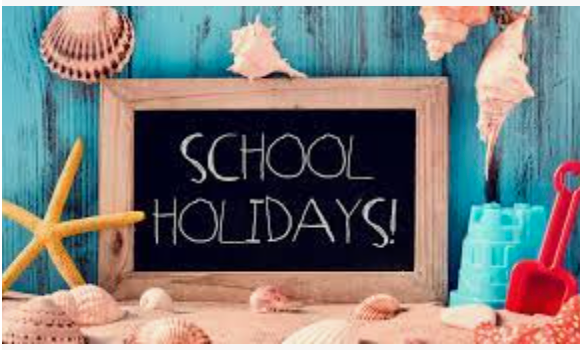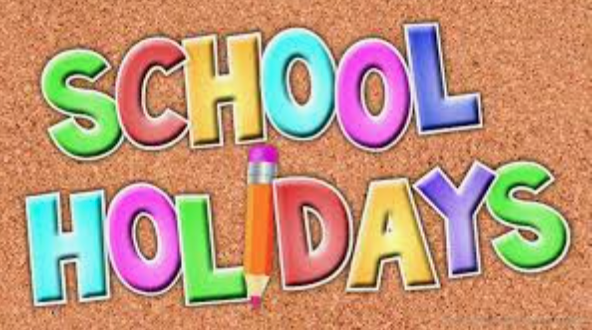7C2 Global Studies
Section outline
-
Kia ora 7C2,
A huge welcome to Coast/Takutai Whanua. My name is Mrs Raeesa Dada and I am you Global Studies teacher for this year.
I hope that you had an awesome holiday break and that you are ready to venture with your learning in Coast Whanau.



At MHJC we refer to this learning area as Global Studies.
EXPLORE / TŪHURA learning intentions:
- We are EXPLORING Our Place and making connections
- We are EXPLORING and sharing our understanding of the significance of Waitangi Day and why it is celebrated in NZ.
- We are EXPLORING our new school, MHJC and getting to know each other


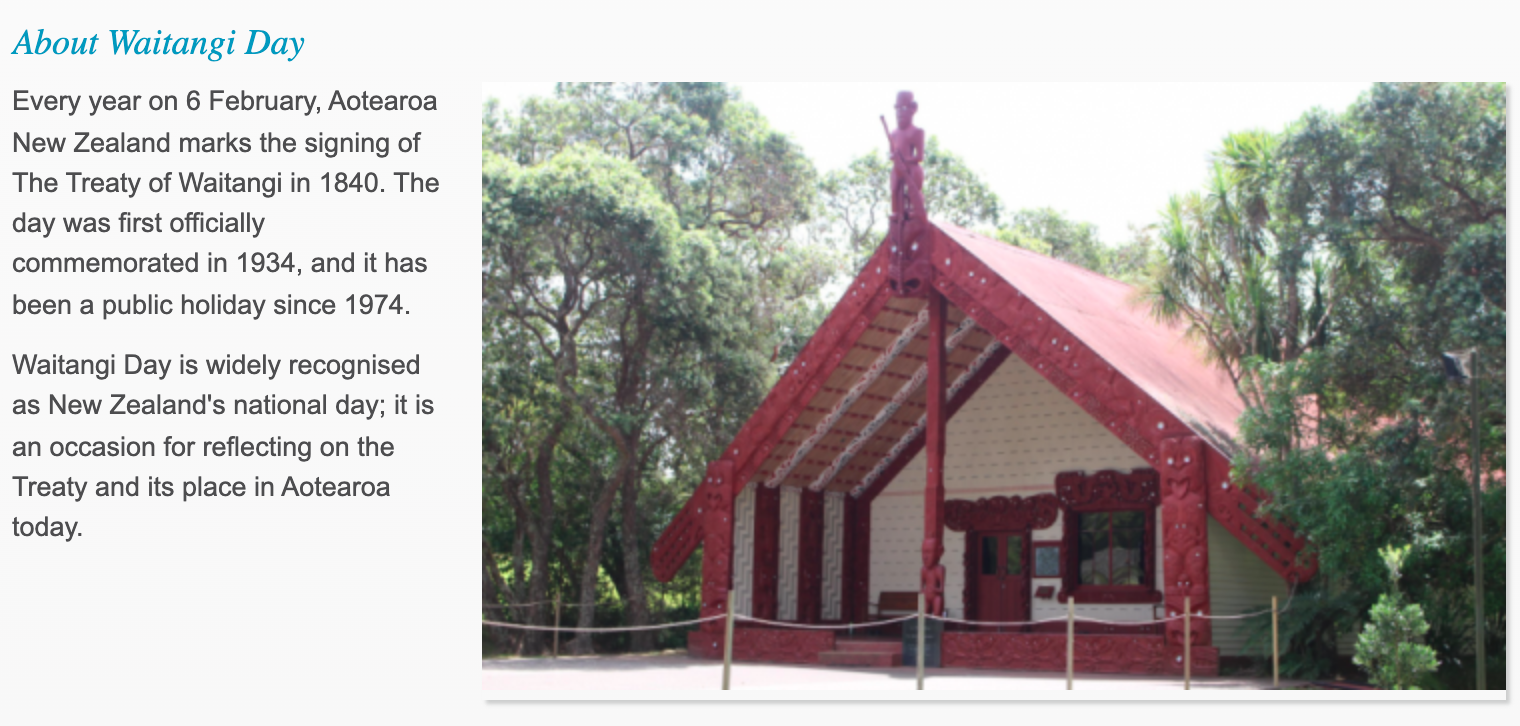
Please refer to our 7C2 Google Classroom for more Waitangi Day resources.
https://classroom.google.com/u/0/w/NDYzMjIzOTQ2NjY3/t/all
Our learning context is Our Place : Making Connections.
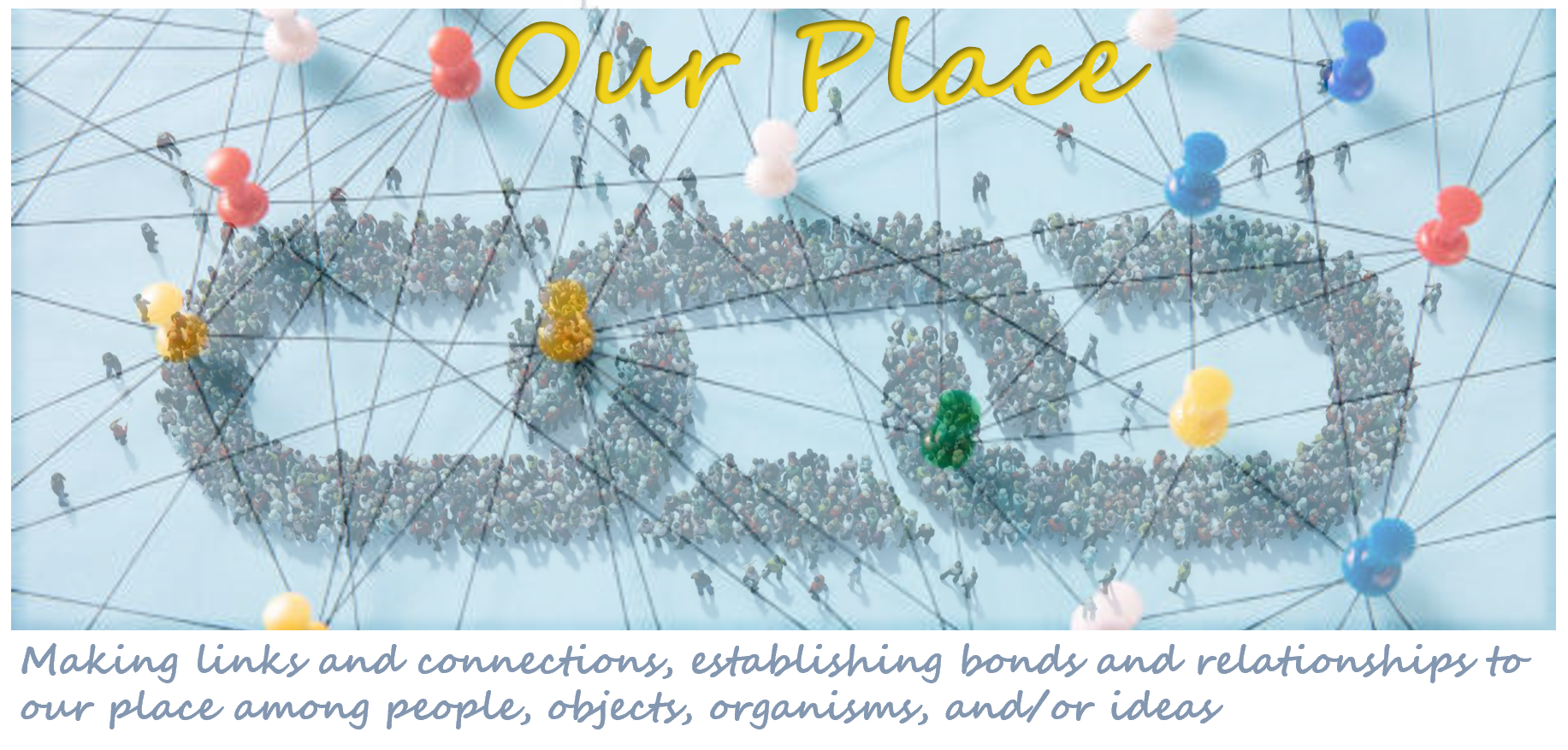
During our first session this week we are going to do an activity using wool and sharing a bit about ourselves. :)
-
Kia ora 7C2,
EXPLORE / TŪHURA learning intentions:
- We are EXPLORING... the Treaty of Waitaingi
- We are EXPLORING...my immigration story, understanding who we are and where we came from
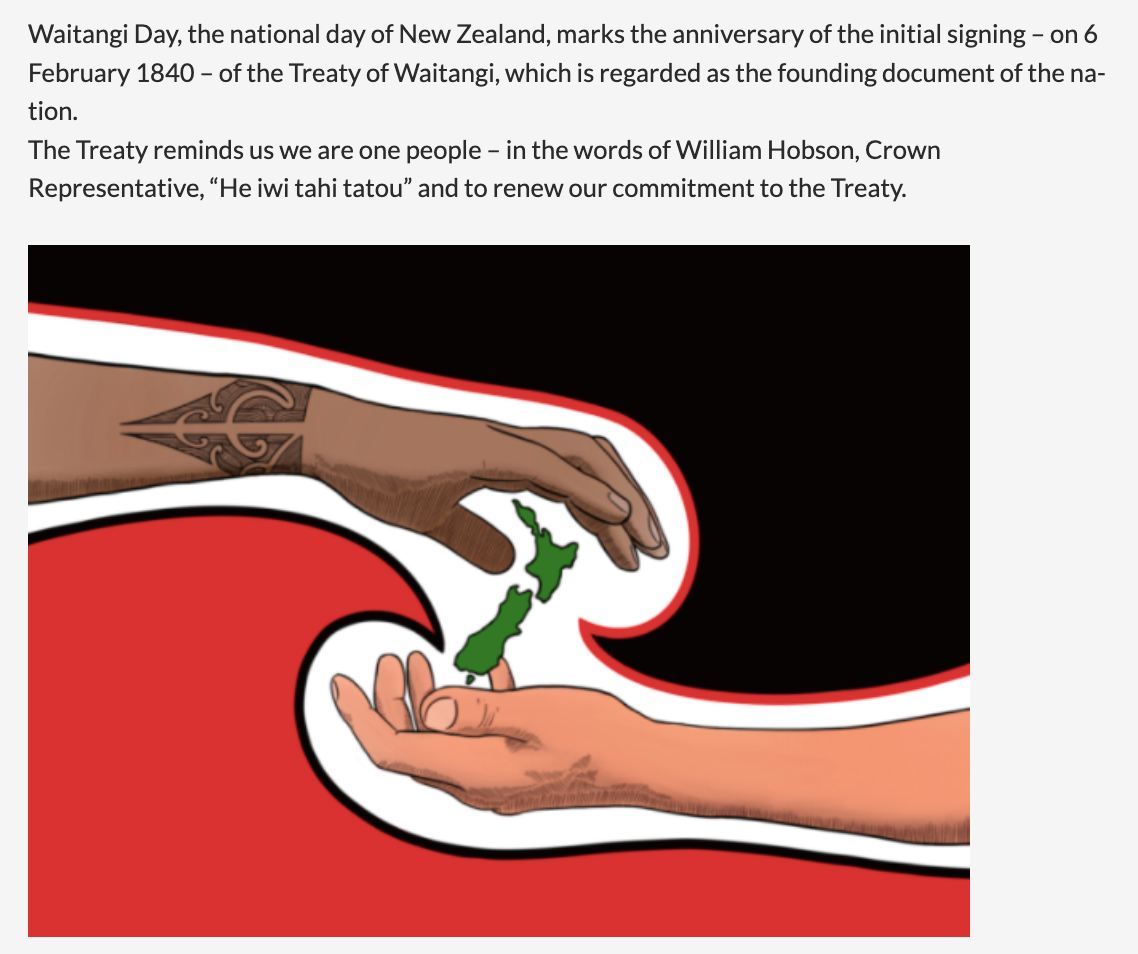
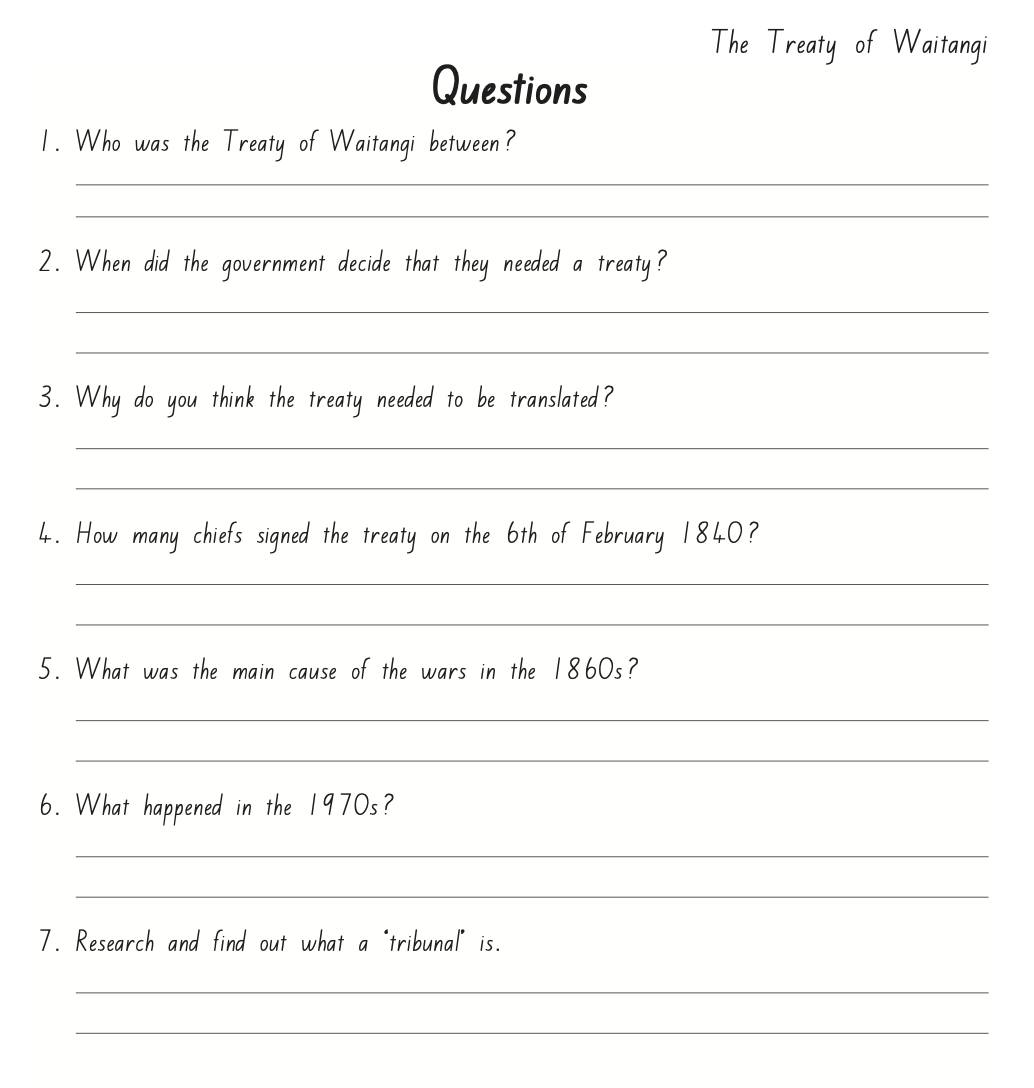
During this week we will also be completing our pepeha to share in class, so that we all get to know each other and learn more about our cultures. Below is a link to one of my favouite songs. I hope that you enjoy it! :)
Pepeha is a way of introducing yourself in Māori. It tells a story of the places and people you are connected to.
WALT:
Make connections and share information about our cultures, so that we get to know and understand each other.This is to help build relations and help us connect better with each other.

I can...
- Understand our learning context by making links to ourselves/ friends and community
- Understand my immigration story and pepeha by creating a visual that describes me
- Using the link provided, complete your pepeha: https://pepeha.nz/
- Take some time to practise your pepeha and read it to Mrs Dada.:)
- Say your pepeha to your buddy.
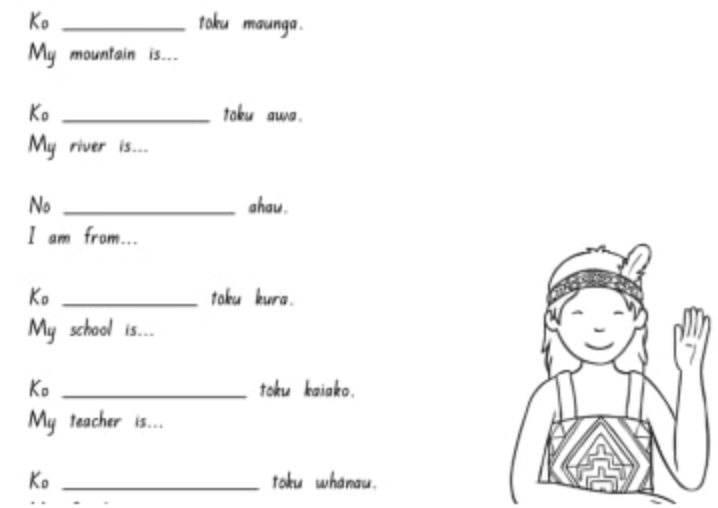

Thursday: Skills
EXPLORE / TŪHURA learning intentions:
- We are EXPLORING our Mapping skills.
- We are EXPLORING the use of compass directions.
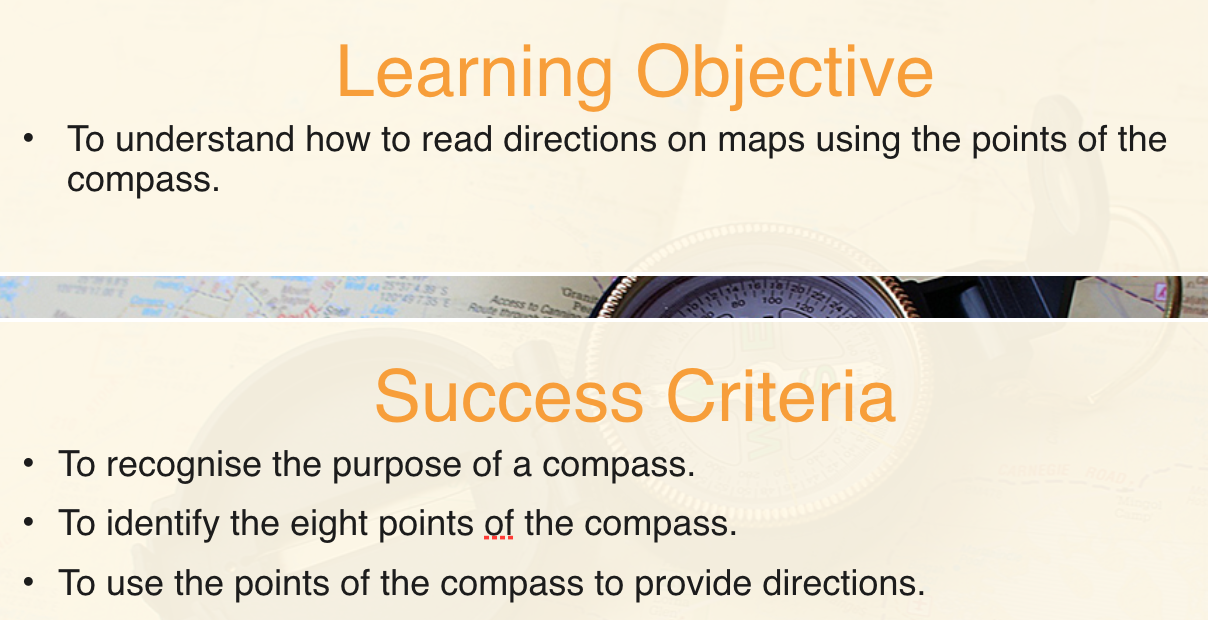
Activities:
Starting on a new page in your books, write down the heading Mapping Skills and Direction.Copy the Learning Objective and Success Criteria.
Next answer the questions from the slide below in your Global Studies book.

For your information,

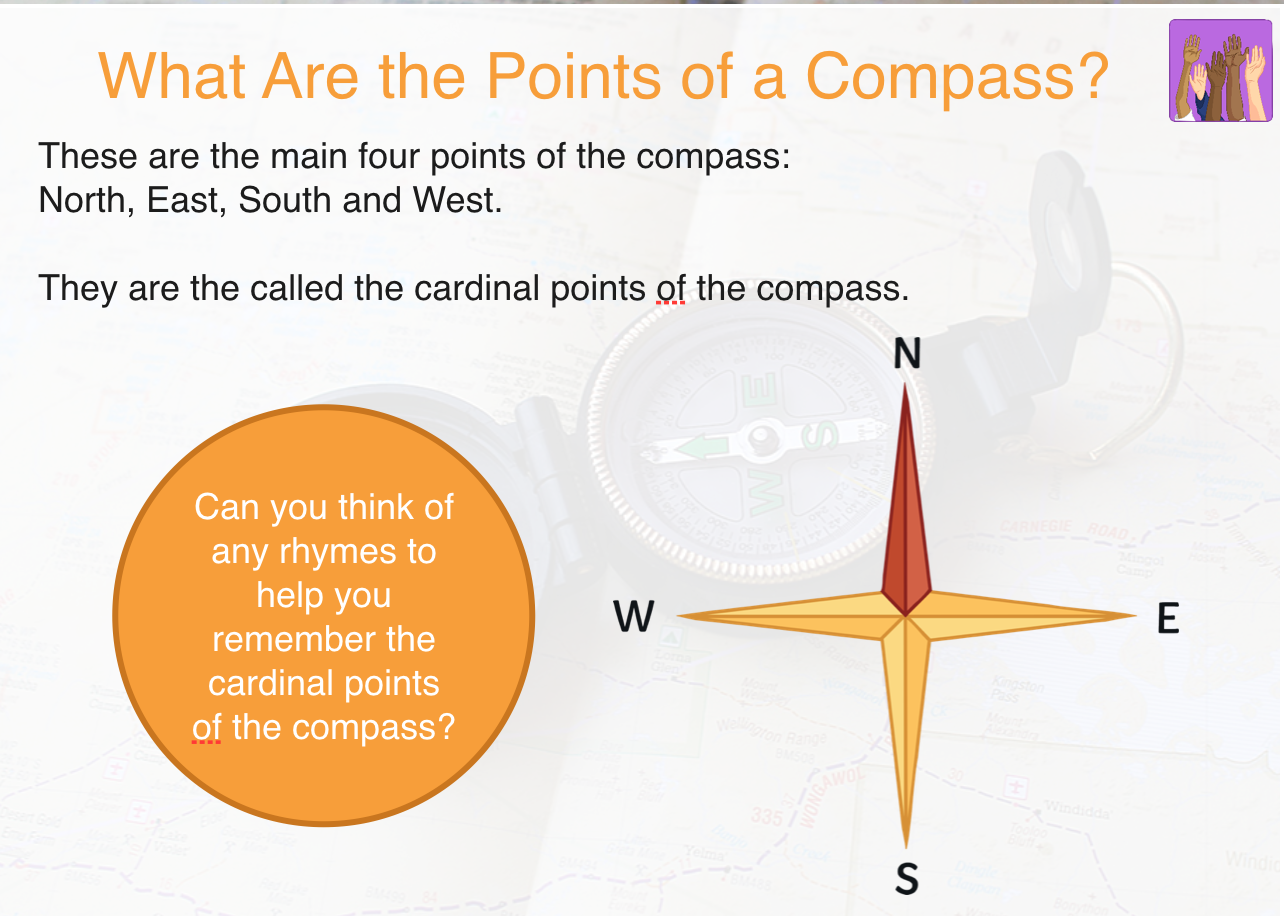
Copy the compass points image below in your book and label the compass points.
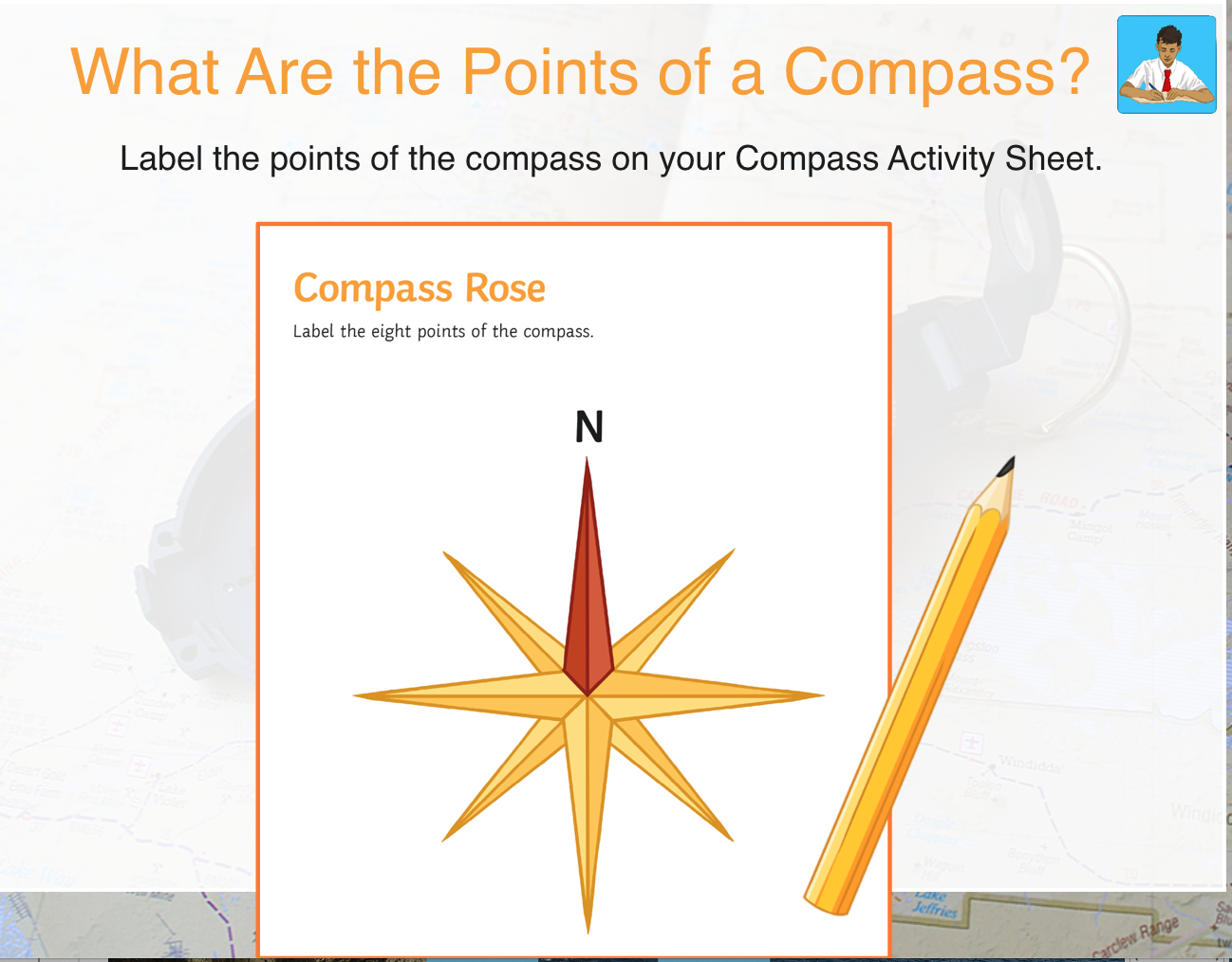
Activities:
Weekly quiz
Resources:Mihi - introductions, Māori ki Te Whare Wānanga o Ōtākou ...
-
Kia ora 7C2,
EXPLORE / TŪHURA learning intentions:
- We are EXPLORING Our Place by making connections to the history of MHJC.
- We are EXPLORING by researching information about Sir William Manchester and his connection to MHJC.
We will only be having 2 sessions this week, as school will be closed on Thursday for our online Student-Led Conferences.
During our session on Monday we will be looking at Our Place: MHJC.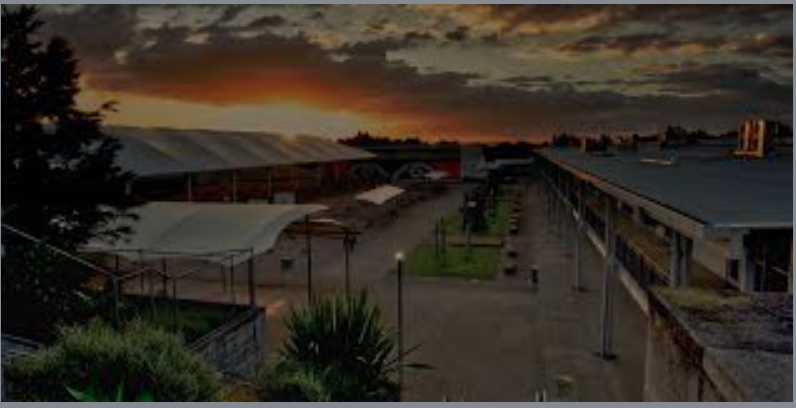

MHJC opened in 2009 on a site that had been bought from Sir William Manchester who is acknowledged in the Meeting Place next to the library.

Originally the land belonged to Ngai Tai ki Tamaki and we are fortunate to have strong links with the iwi and our whakapapa is acknowledged through the school haka.
We are fortunate to have a modern buildings and equipment as well as a link with the past by acting as custodians of Tāne forest next to the college.
Our vision is to “grow greatness through innovative, constantly evolving personalised learning”
We value:
Pono/integrity which relates to how we manage ourselves – we encourage students to be reliable, responsible and trustworthy;
Awhinatanga/compassion or how we relate to others – we encourage students to be kind, compassionate and celebrate our unique cultural identities;
Whakamana/empowerment through learning – which includes prioritising how we learn using the Great Ako learning model, being digitally capable and responsible, and developing creativity and problem solving skills.
Our mission
At Mission Heights Junior College we recognise that every child is a valued and valuable individual and that within each child is a unique “grain of greatness” which it is our mission to grow.
A feature of our school is our intent to present learning in engaging, relevant and authentic contexts. We are keen to involve the community and real community issues in school life. Our school has also been designed and constructed to an “environmentally sustainable design” and caring for our environment is a key aspect of our school culture.

Success Criteria: I can/have...
- Share 3 interesting facts about MHJC.
- Take notes and share 3 interesting facts about Sir William Manchester
Tuesday: Our skills session and Weekly Quiz will be on Tuesday instead of Thursday.
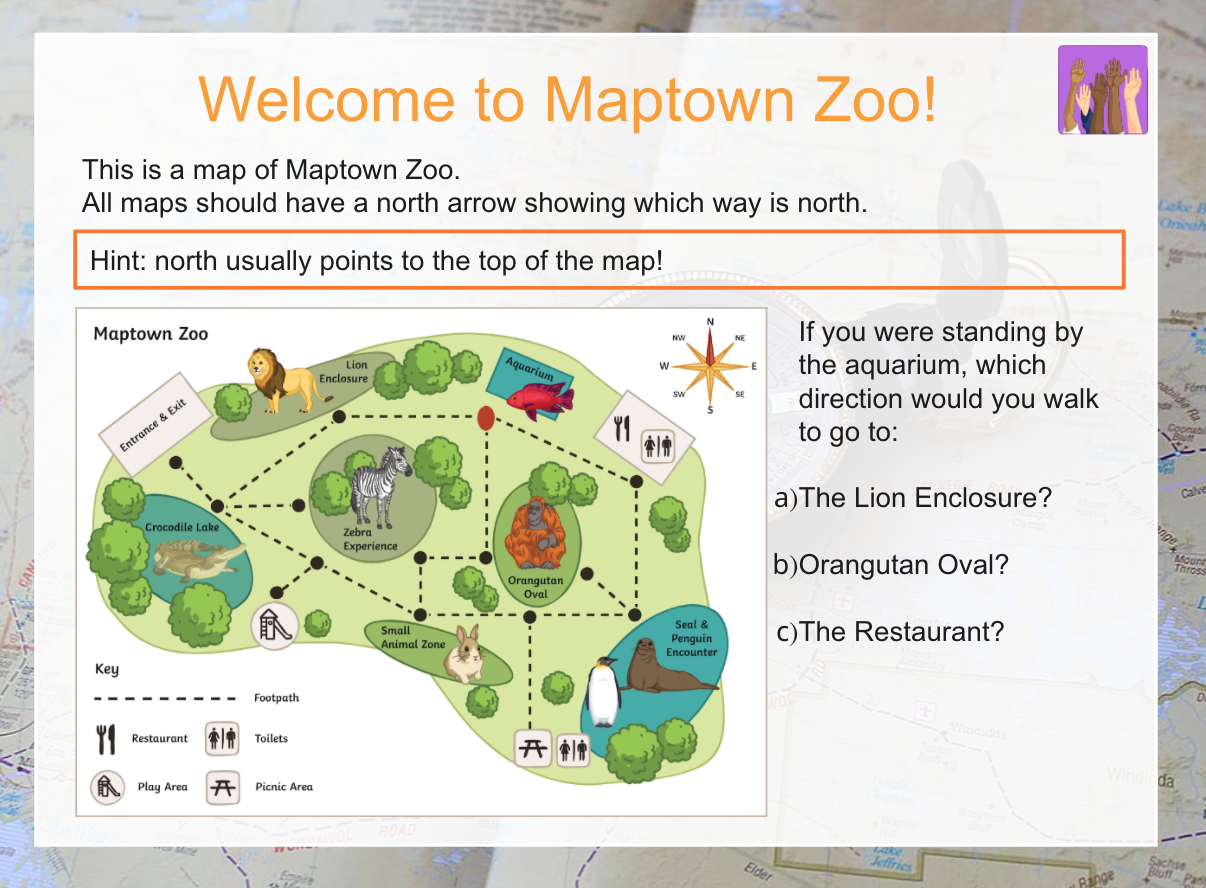

Activities:
- Visit the Meeting Place, next to the library to gain a better understanding of Sir William Manchester and his life.
- Complete the mapping activities after our session on Tuesday,
- A reminder to visit Google Classroom for extra resources.
- https://classroom.google.com/u/0/w/NDYzMjIzOTQ2NjY3/t/all
-
FOCUS / ARONGA learning intentions:
- We are FOCUSING on explaining our Fact File research about Sir William Manchester
- We are FOCUSING on identifying key facts about Sir William Manchester
To recap our learning from last week, you will be completing a fact file about Sir William Manchester.

This will be due by the end of our session on Monday.
Please refer to Google Classroom for the slideshow that has been created for each student.
On Tuesday we will focus on our learning context, Our Place. As part and of our learning journey, we will explore and research links to our place:
LI We are learning how to make connections between our culture and our place.
- How do the following key words: respect/ religion/ culture/ traditions/ heritage/ immigration/ changes and adaptation link to our context : Our Place?
- Reflect on your immigration story . Did you or you parents immigrate from another country? Why did you leave? What were the various values and practices of of culture that you were exposed to from your birth country or parents birth country? Is it different or similar to the values of living in New Zealand.
- Think of all the values you consider as an import part of who you are are that has been shown and taught to you by your family, community and school. Using the information draw a plan of the different symbols, images, colours, flags, that make up your unique identity. Complete this on a new page in your Global Studies book or digitally.
- Think of a way you would like to showcase your cultural identity . For example, design a digital pepeha from your culture that shows your cultural side compared to your Kiwiana side, or perhaps it is an integration of both your culture and new adopted Kiwi culture embodied as one. You could share both sides of your culture or one side. It's up to you! :)
- This can be created in various ways e.g.: The face mask or a bandana, flags, music instruments, cultural food, important traditional clothing, religious symbols, clothes, phrases, dance form, values: respect, compassion, care, support and understanding. However, I will allow you to express your cultural identity using any model or visual you like.
- Once you have completed this, share your pepeha with the class
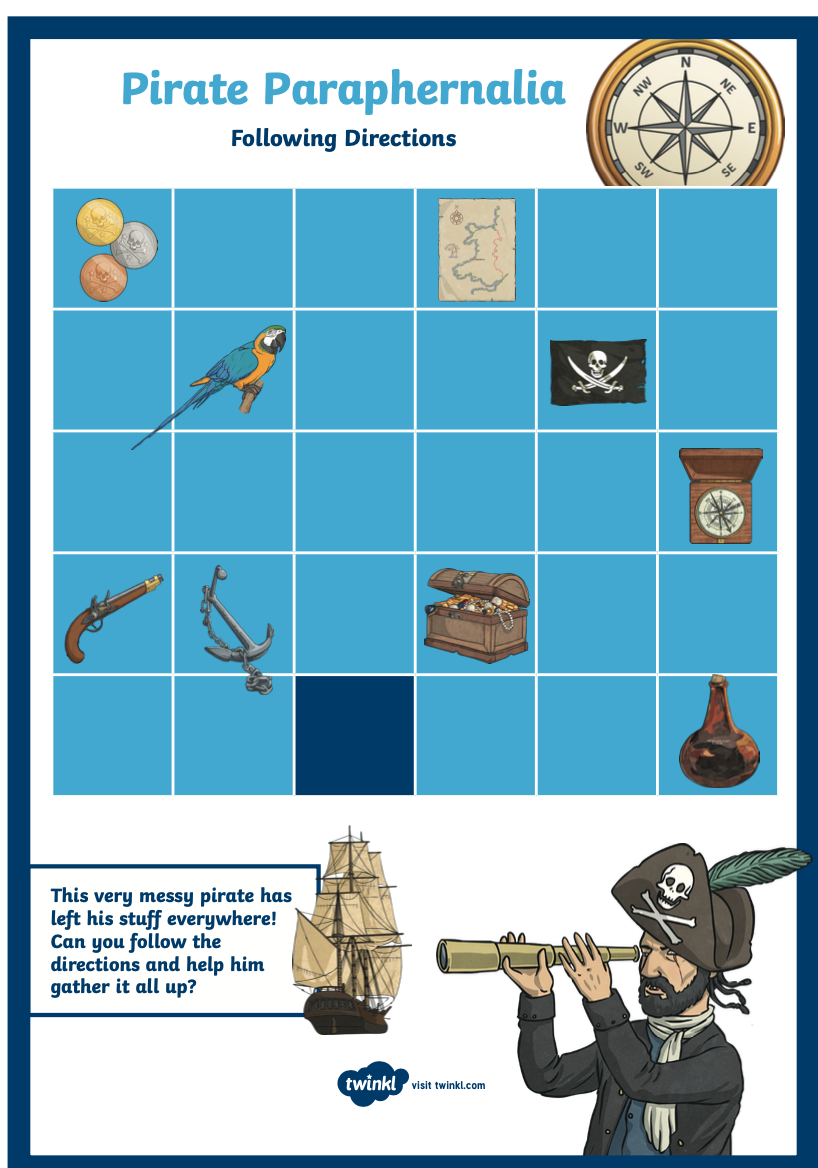
-
On Monday we will focus on our learning context, Our Place. As part and of our learning journey, we will explore and research links to our place:
LI We are learning how to make connections between our culture and our place.
- Recap from last session: Reflect on your immigration story . Did you or you parents immigrate from another country? Why did you leave? What were the various values and practices of of culture that you were exposed to from your birth country or parents birth country? Is it different or similar to the values of living in New Zealand.
- Think of all the values you consider as an import part of who you are are that has been shown and taught to you by your family, community and school. Using the information draw a plan of the different symbols, images, colours, flags, that make up your unique identity. Complete this on a new page in your Global Studies book or digitally.
- Think of a way you would like to showcase your cultural identity . For example, design a digital pepeha from your culture that shows your cultural side compared to your Kiwiana side, or perhaps it is an integration of both your culture and new adopted Kiwi culture embodied as one. You could share both sides of your culture or one side. It's up to you! :)
- This can be created in various ways e.g.: The face mask or a bandana, flags, music instruments, cultural food, important traditional clothing, religious symbols, clothes, phrases, dance form, values: respect, compassion, care, support and understanding. However, I will allow you to express your cultural identity using any model or visual you like.
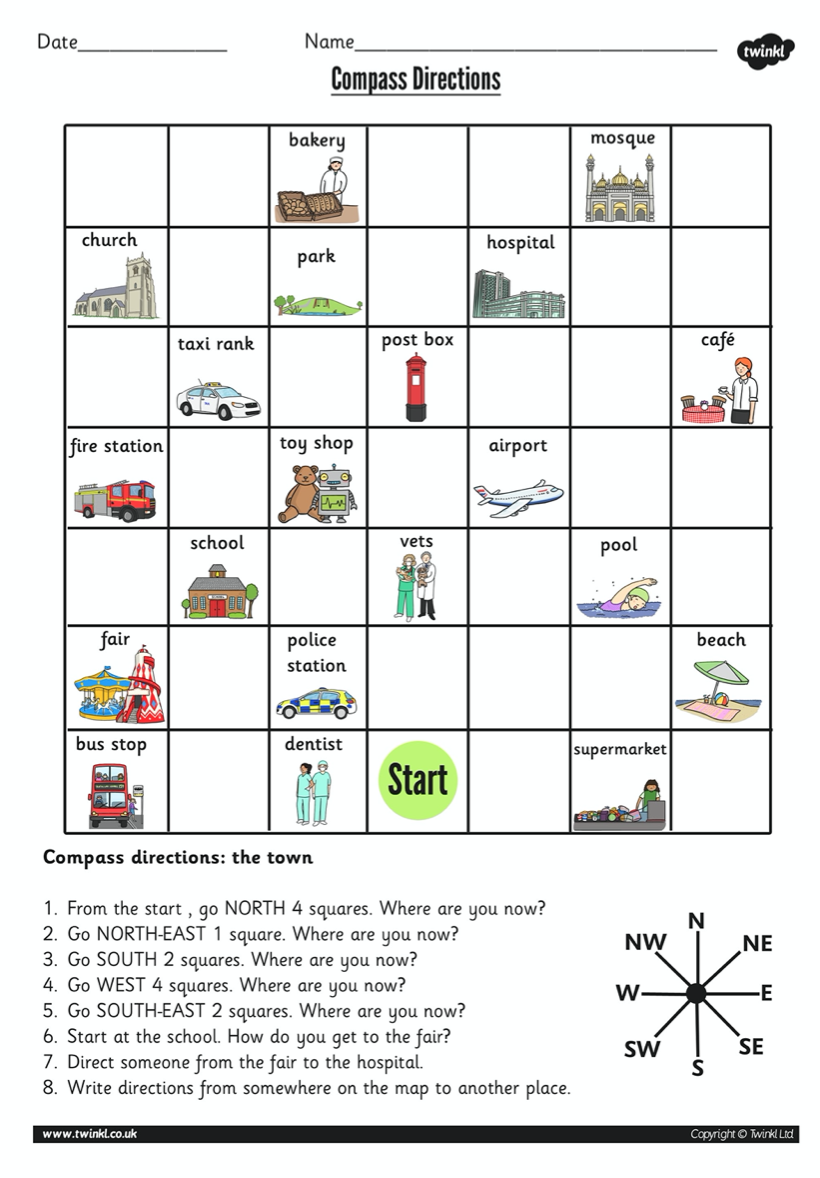
-
Kia ora 7C2,
Achievement Objectives:
L3 Understand how the movement of people affects cultural diversity and interaction in New Zealand.L4 Understand how people pass on and sustain culture and heritage for different reasons and that this has consequences for people.
Context: Our Place
Learning Intentions:To identify where we come from and the possible reasons for why our family has left their country of birth
To research what is immigration and the reasons why people immigrate to New Zealand( push and pull factors)
To examine and predict what is the population dynamics of Auckland and Flatbush.
Success Criteria: Have understood key terminology linked to immigration, citizenship, values and government systems
Have researched the possible reasons why people immigrate into New Zealand.
Have understood what are the population dynamics in Auckland and Flatbush
Activities:
1) Through a brainstorm activity define what is meant by Our Place. Think of ten words that may link well to this idea e.g.: community, culture, immigration, citizen.
2) By working in teams of two draw a table where you outline the important reason why people immigrate. This table should have 3 columns that include Push Factors/ Pull Factors and Images. I will do a class example with you about immigrants leaving South Africa.Watch the video as support:
5) Examine the Map of New Zealand. Identify where is Auckland and Flatbush. What d you think is the population statistics and dynamics of our city and suburb.

Homework:
Read on The history of Flatbush:
Flat Bush - Wikipedia
Resources:
Immigration definition and meaning | Collins English Dictionary
Migration: Pull and Push Factors - eSchooltoday
eschooltoday.com/migration/the-pull-and-push-factors-of-migration.htmPush-Pull Factors that Determine Population Migration - ThoughtCo
https://www.thoughtco.com › Humanities › Geography › BasicsStatistics | Immigration New Zealand
https://www.immigration.govt.nz/about-us/research-and-statistics/statistics Work to be completed for FFR:
Work to be completed for FFR:Activities:
Watch video on Early Maori cultures in NZ and answer the following questions:
- When did Maori people arrive in NZ and from which locations in the world.
- How did they arrive here.
- Describe the waka. Discuss the types of tribes found at that time and where did they settle.
- Discuss the foods Maori eat and how they collected as well as prepared traditional foods.
- Show the cultural dress/ music/ art and dance that is symbolic to them.
- What are the languages spoken.
- Examine the conflict between British and Maori people. Also explain with images the meaning of the treaty of Waitaingi.
- Do you think Maori cultures identity today is the same from few hundred years ago. Explain.
- How has the "west" influenced local Maori Identity.
Resources:
The Maori - New Zealand in History
-
Kia ora 7C2,
FOCUS / ARONGA learning intentions:
- We are FOCUSING on applying our mapping skills.
- We are FOCUSING on explaining directions, using a map.
- We are FOCUSING on following directions and answering questions involving map work.
Success Criteria: I can/have...
- Follow directions.
- Apply my mapping skills.
Activities:
- Complete the Hopeville map challenge on Google Classroom.
https://classroom.google.com/u/0/w/NDYzMjIzOTQ2NjY3/tc/NDU1NzkzNTY4MTYz
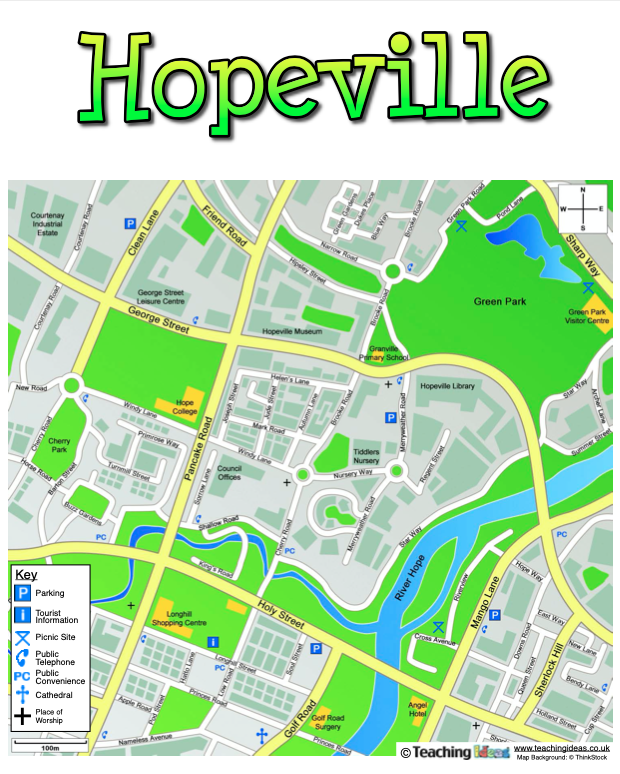
Refer to challenge cards and Map on our 7C2 Google classroom.
Complete answers on a doc and upload on Googleclassroom. -
Kia ora 7C2,
This week we will miss our session on Monday due to our Teacher Only Day.
We will discuss the answers to our Hopeville Town Challenge on Tuesday.
Our Assessment 1: Mapping skills will be completed in class on Thursday.
The purpose of this assessment is to show your understanding of mapping skills taught and discussed in class.
The second part of this assessment involves the application of your mapping skills.
As discussed in class, as part of our context of, Our Place, it is important to understand compass directions and mapping skills in order to physically be able to find your way around our community, direct others who may be lost and in order for you to connect and find places in our community eg. Did you know that The Buddhist Temple is a tourist attraction? Would you be able to direct a visitor to the temple if they were lost?
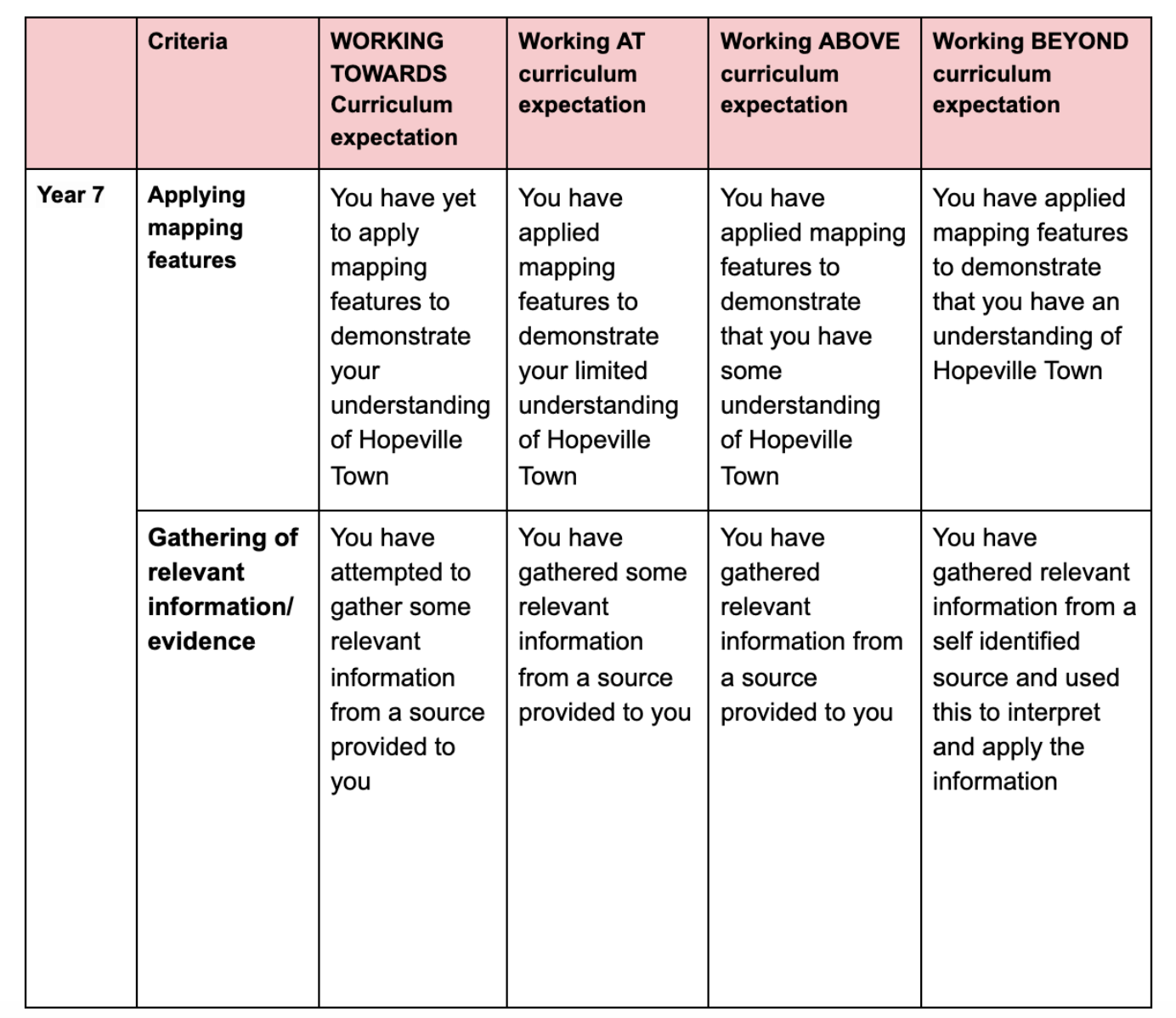
- In order to prepare for this assessment, please go over our mapping skills activities that we have already discussed and completed in class. These resources are on MHOL and Google Classroom.
FOCUS / ARONGA learning intentions:
- We are FOCUSING on applying our mapping skills.
- We are FOCUSING on explaining directions, using a map.
- We are FOCUSING on following directions and answering questions involving map work.
Success Criteria: I can/have...
- Follow directions.
- Apply my mapping skills.
Activities:
Discuss your mapwork challenge answers.

Refer to challenge cards and Map on our 7C2 Google classroom.
-
As part of our context, Our Place, it is important to understand compass directions and mapping skills, in order to physically be able to find your way around our community and to direct others who may be lost. The purpose of this assessment is to show your understanding and application of mapping skills taught and discussed in class.
-
Kia ora 7C2,
As part of our context of Our Place, our focus for this week is on ANZAC Day and why it is celebrated in New Zealand.
We'll be completing a few activities in class - and having a taste of some ANZAC cookies!
Watch the short video below to gain a better understanding of ANZAC Day.

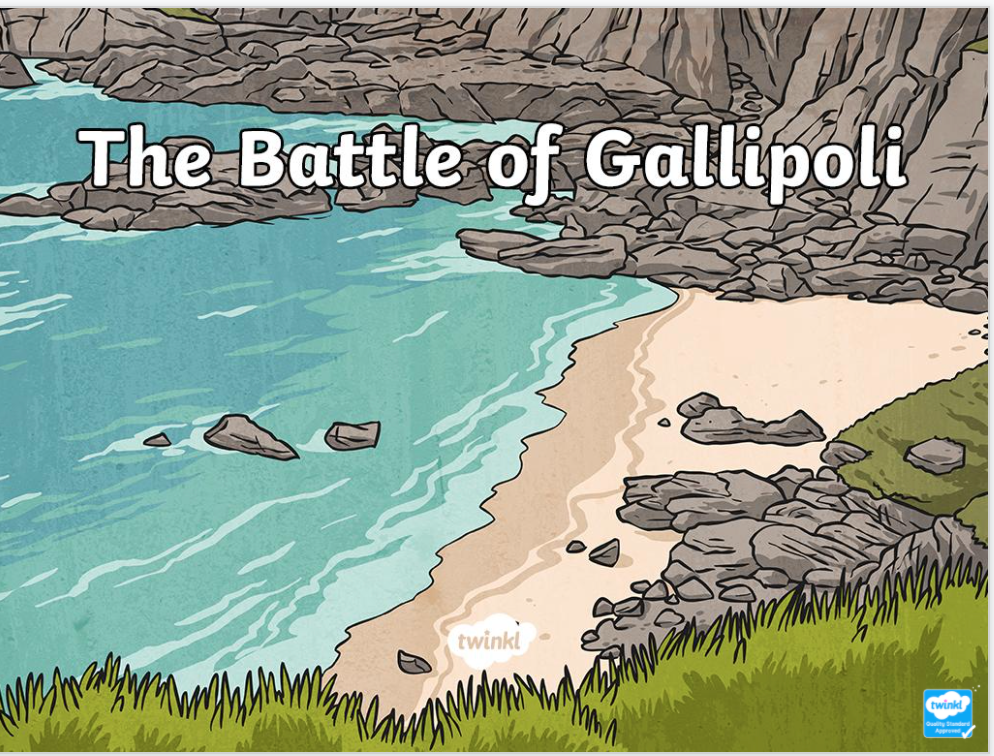
After reading through the attached slideshow, complete the following questions in your Global Studies book:
(The slideshow can also be found on Google Classroom - if you are struggling to open it.)
1. Write down 5 interesting points that you've learnt about the Battle of Gallipoli.
2. Explain in your own words why the Battle of Gallipoli occurred.
3. After reading through the slides, explain why we remember the Battle on ANZAC Day? -
Kia ora 7C2,
During our sessions this week we will be discussing the answers to our Assessment 1.

We will also be discussing your answers to The Battle of Gallipoli.

1. Write down 5 interesting points that you've learnt about the Battle of Gallipoli.
2. Explain in your own words why the Battle of Gallipoli occurred.
3. After reading through the slides, explain why we remember the Battle on ANZAC Day?I look forward to watching each of you "teach" your lesson on ANZAC - based on the cards that you have selected.
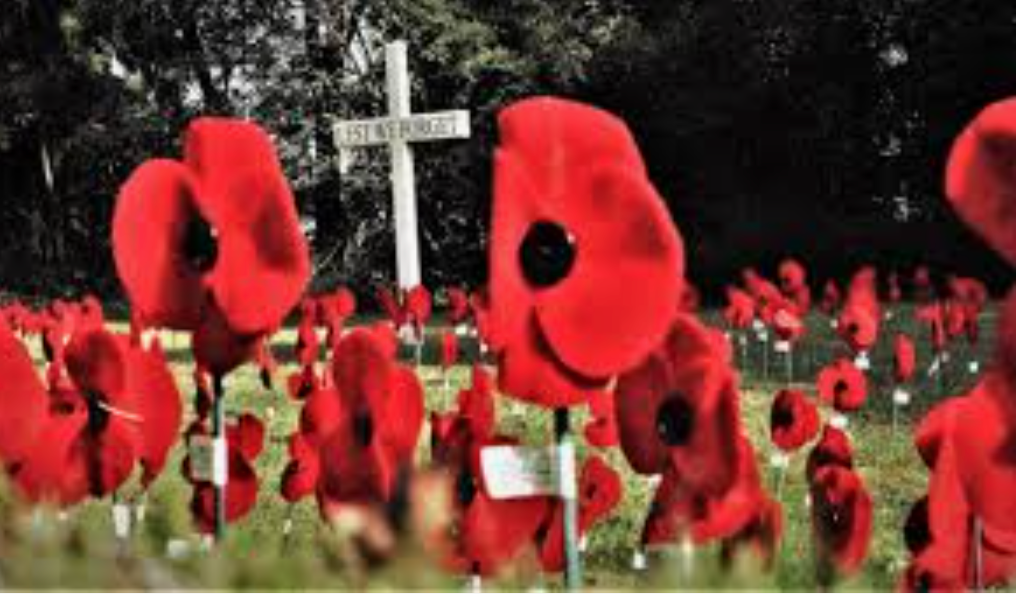
-
Kia ora 7C2,
A warm welcome back! I hope that you had an awesome holiday break!
For the next 2 weeks we will continue with our context "Our Place." Our focus will be Our Place - with regards to our online learning at MHJC. As part of our MHJC learning journey we will focus on online safety and I will be introducing you to our MHJC ePassport.
The MHJC ePassport is a journey of activities and tasks that are designed to help you use the internet safely and competently.
https://sites.google.com/mhjc.
school.nz/mhjcepassport/home There is also a section called Cybersafety. This section has Interlander games that you can play while learning about keeping safe online.
All stages that you complete can be used as part of your evidence for your holistic report.
Follow the link below, which explains to your learning Advisor, where your completed ePassport will appear once you are done.
 ePassport MHOL Appearance after Grading https://youtu.be/4KwdbS_QIs8
ePassport MHOL Appearance after Grading https://youtu.be/4KwdbS_QIs8Key points for your Learning Advisor:
· 1️⃣ ePassport is student-driven; so it is your LA students’ responsibility to gather their evidence.
Students, this means that if you don't complete your work on your own - your Learning Advisor will not be chasing after you with numerous reminders - your report at the end of the year will show that you have not completed your ePassport. This will be discussed with your parents during your Term 3 SLC - so I suggest that you get it done befor then. :)
· 2️⃣ Once students have achieved a level of any ePassport criterion, they will show their LA for verification.
· 3️⃣ When LA (teachers) are pleased with the progress made based on the provided evidence, they can update the ePassport rubric on MHOL.
-
Kia ora 7C2,

Our focus for this week is MATARIKI. Please refer to our Google Classroom for resources.
Please copy the following vocabulary into your Global Studies books.
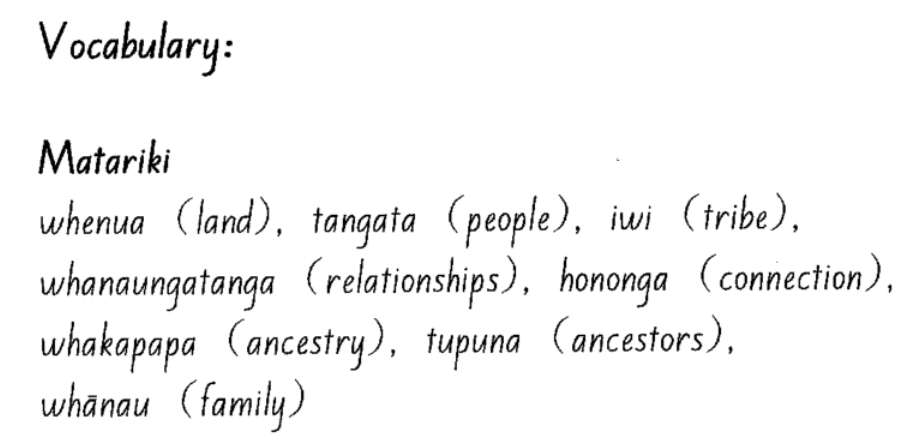
What is Matariki?
Matariki is one of the most important Māori celebrations. It signifies the start of the New Year in Māori culture.
Matariki is the name for a star cluster also known as the Pleiades, that rises in late June or early July. It literally translates in English to the 'eyes of god' or 'little eyes'.
Write down 5 facts in your book about Matariki ?

When is Matariki?
In 2022 Matariki will be celebrated between 24 June.
How is Matariki celebrated?
Traditionally, Māori believed if the Matariki stars were very bright in the sky, this signified a warmer season and more fruitful crops for harvest.
It was seen as an ideal time for ceremonial offerings to the Māori land-based gods Rongo, Uenuku and Whiro to ensure their crops were healthy for the coming year. Matariki was also seen as an important time for family to gather and reflect on the past and the future.
Today Matariki celebrates the unique place in which we live and gives respect to the land we live on. This is celebrated through education and remembering whakapapa (ancestry).
The planting of new trees and crops is done to represent new beginnings.
Celebrations traditionally last up to 3 days after the new moon has risen following the Matariki clusters visibility in the sky.
What are the Matariki stars called?
Matariki is a star cluster, not a constellation. The 9 Matariki stars are called:
- Hiwa-i-te-rangi
- Matariki
- Pohutukawa
- Tupu-a-nuku
- Tupu-a-rangi
- Ururangi
- Waipuna-a-rangi
- Waiti
- Waita
Please complete the following activity in your Global Studies book:

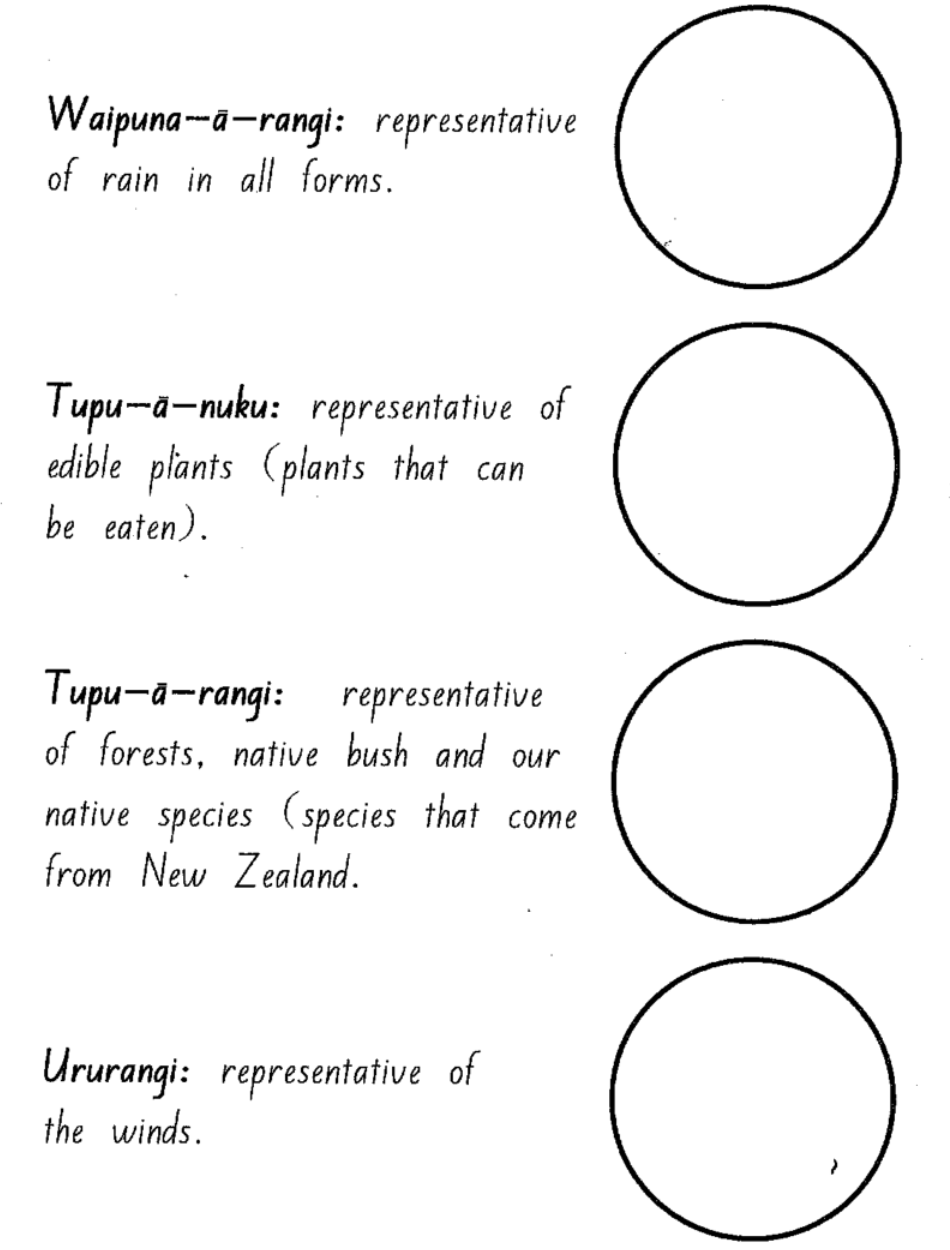
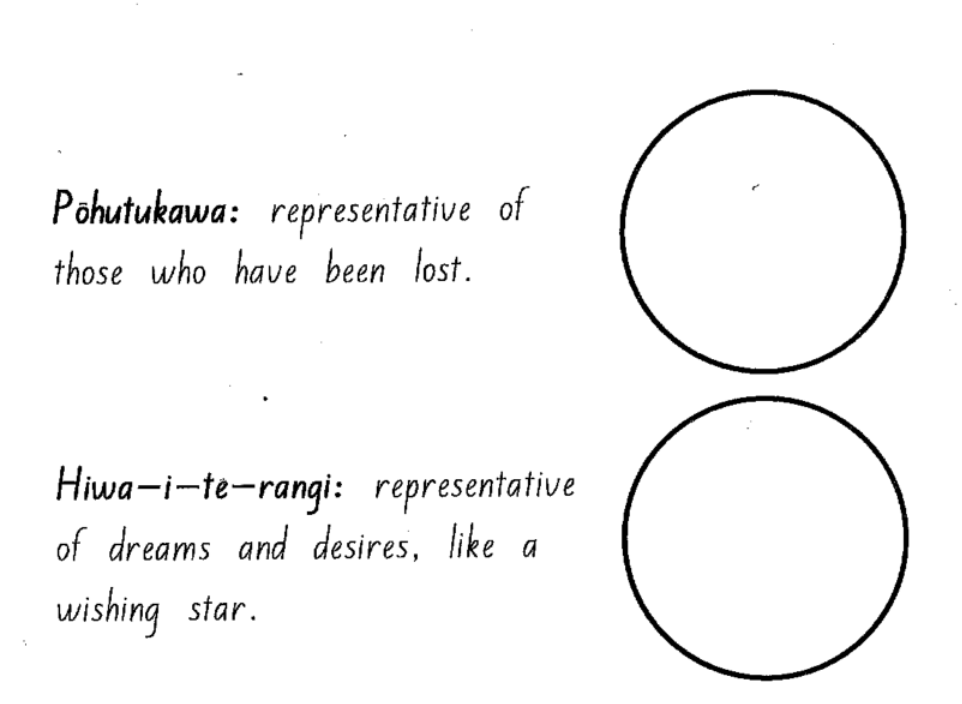 During the next 2 weeks, you will select an area of Mariki that you would like to research.As discussed in class, using your notetaking skills you will be researching and presenting your work to the class on Monday 23 May.
During the next 2 weeks, you will select an area of Mariki that you would like to research.As discussed in class, using your notetaking skills you will be researching and presenting your work to the class on Monday 23 May.- The Matariki Celebration: Sanmeet, Tanvi, Delicia
- Hiwa-i-te-rangi : Gavin, Callum, Makayla
- Matariki: Lipika, Elva
- Pohutukawa: Rohan, Keanu, Tyrell
- Tupu-a-nuku : Emily, Taelyn
- Tupu-a-rangi : Saihaj, Xavier
- Ururangi : Keeran, Glennah
- Waipuna-a-rangi : Dan, Tsung Wai
- Waiti : Vibhi, Kayla, Sindhu
- Waita: Reem, Janhavi, Katie
- Maori Legend: about Matariki : Zirui, Lucas
A reminder that your presentations are due on Monday 23 May.
You need to explain the importance of the star that you have selected and what it represents. Please include images. Each group must complete 3-5 slides.
Please refer to our Google Classroom for additional resources.
-
Kia ora 7C2,
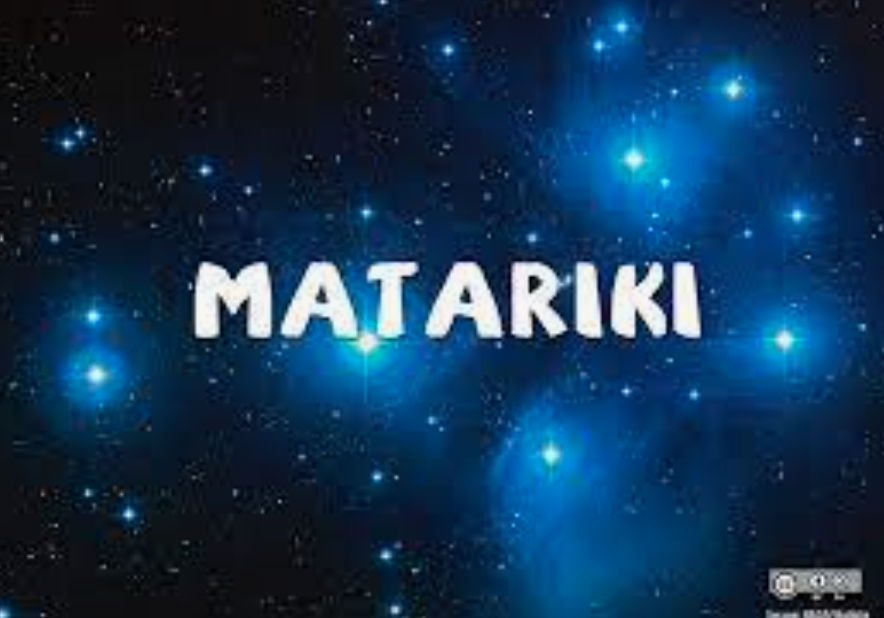
As discussed last week, please continue with your Matariki activities.

What is Matariki?
Matariki is one of the most important Māori celebrations. It signifies the start of the New Year in Māori culture.
Matariki is the name for a star cluster also known as the Pleiades, that rises in late June or early July. It literally translates in English to the 'eyes of god' or 'little eyes'.
Write down 5 facts in your book about Matariki ?
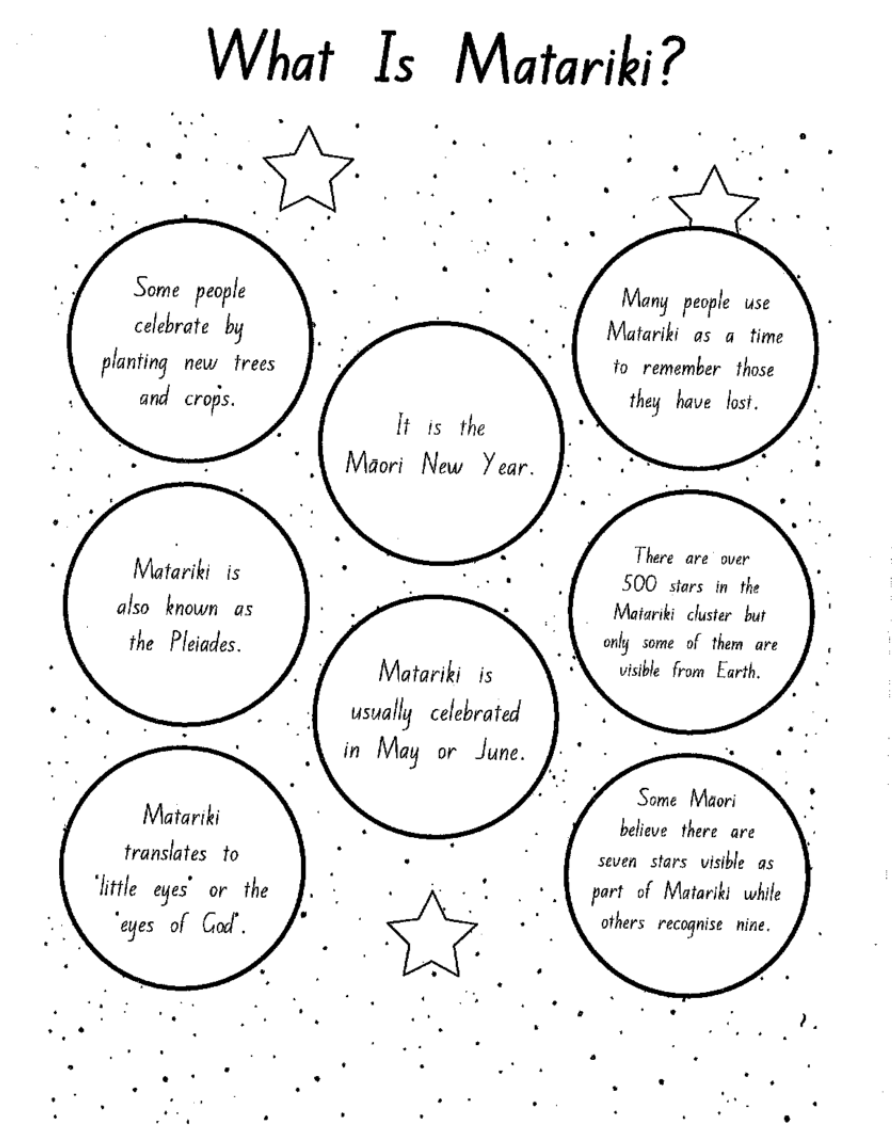
When is Matariki?
In 2022 Matariki will be celebrated between 24 June.
How is Matariki celebrated?
Traditionally, Māori believed if the Matariki stars were very bright in the sky, this signified a warmer season and more fruitful crops for harvest.
It was seen as an ideal time for ceremonial offerings to the Māori land-based gods Rongo, Uenuku and Whiro to ensure their crops were healthy for the coming year. Matariki was also seen as an important time for family to gather and reflect on the past and the future.
Today Matariki celebrates the unique place in which we live and gives respect to the land we live on. This is celebrated through education and remembering whakapapa (ancestry).
The planting of new trees and crops is done to represent new beginnings.
Celebrations traditionally last up to 3 days after the new moon has risen following the Matariki clusters visibility in the sky.
What are the Matariki stars called?
Matariki is a star cluster, not a constellation. The 9 Matariki stars are called:
- Hiwa-i-te-rangi
- Matariki
- Pohutukawa
- Tupu-a-nuku
- Tupu-a-rangi
- Ururangi
- Waipuna-a-rangi
- Waiti
- Waita
Please complete the following activity in your Global Studies book:
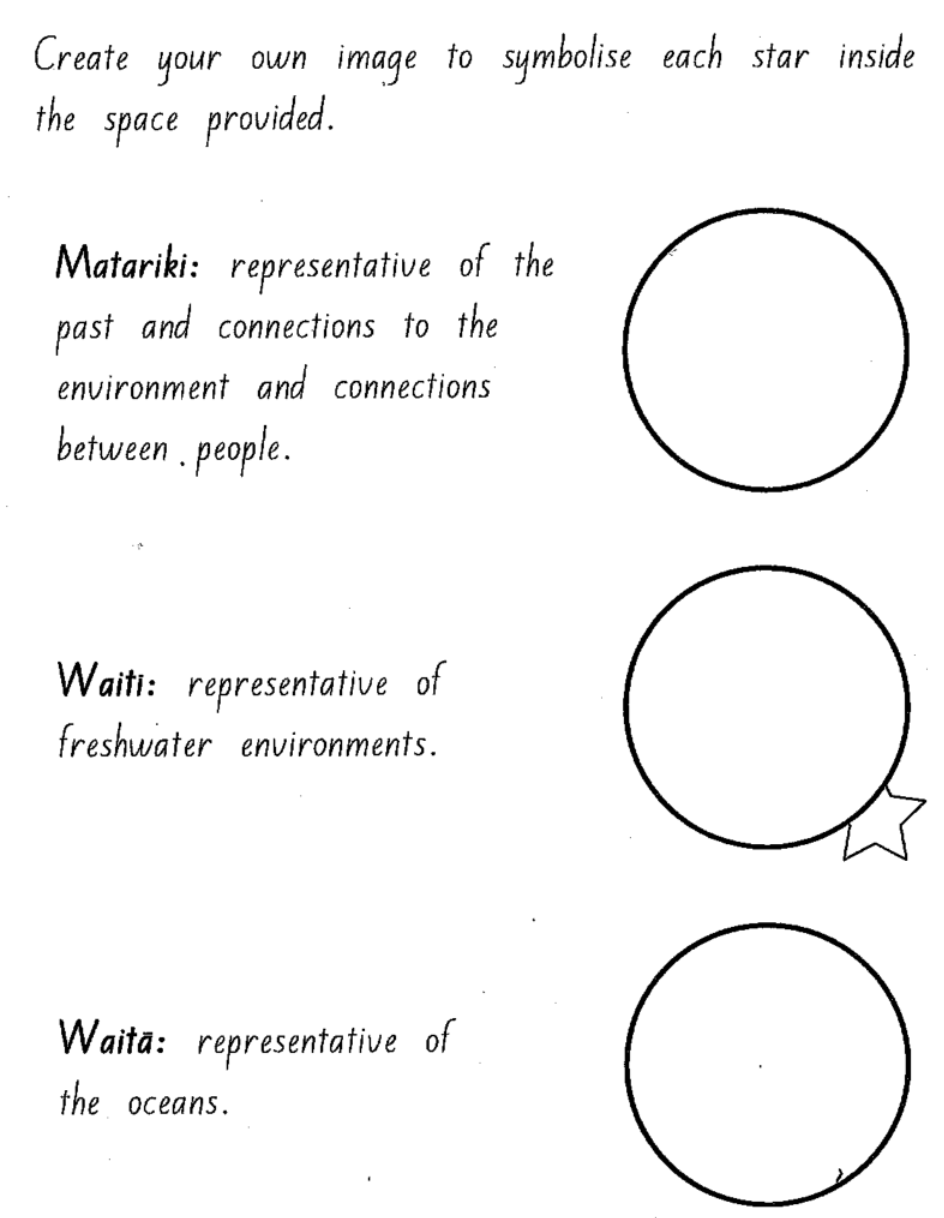

 During the next 2 weeks, you will select an area of Mariki that you would like to research.As discussed in class, using your notetaking skills you will be researching and presenting your work to the class on Monday 23 May.
During the next 2 weeks, you will select an area of Mariki that you would like to research.As discussed in class, using your notetaking skills you will be researching and presenting your work to the class on Monday 23 May.- The Matariki Celebration: Sanmeet, Tanvi, Delicia
- Hiwa-i-te-rangi : Gavin, Callum, Makayla
- Matariki: Lipika, Elva
- Pohutukawa: Rohan, Keanu, Tyrell
- Tupu-a-nuku : Emily, Taelyn
- Tupu-a-rangi : Saihaj, Xavier
- Ururangi : Keeran, Glennah
- Waipuna-a-rangi : Dan, Tsung Wai
- Waiti : Vibhi, Kayla, Sindhu
- Waita: Reem, Janhavi, Katie
- Maori Legend: about Matariki : Zirui, Lucas
A reminder that your presentations are due on Monday 23 May.
You need to explain the importance of the star that you have selected and what it represents. Please include images. Each group must complete 3-5 slides.
Please refer to our Google Classroom for additional resources.
-
Kia ora 7C2,
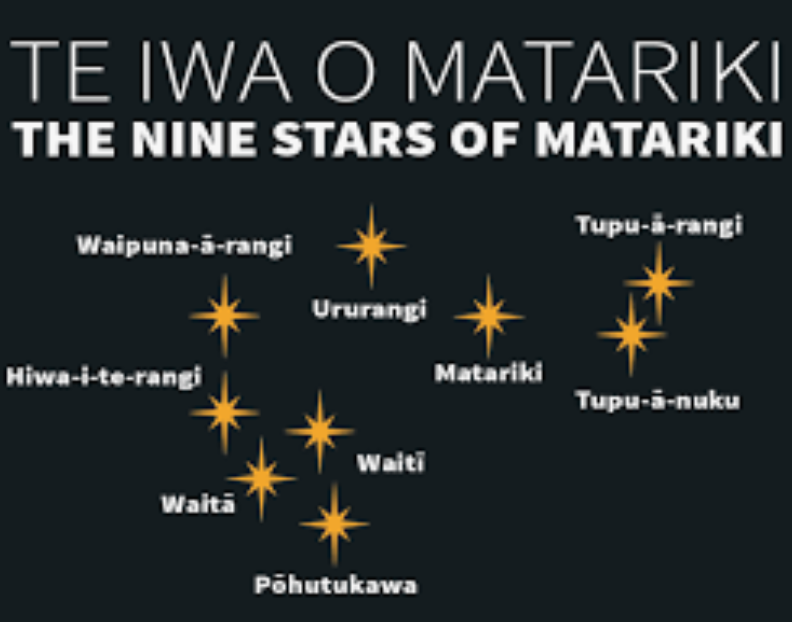 This week you will be doing your Matariki presentations.
This week you will be doing your Matariki presentations.- The Matariki Celebration: Sanmeet, Tanvi, Delicia
- Hiwa-i-te-rangi : Gavin, Callum, Makayla
- Matariki: Lipika, Elva
- Pohutukawa: Rohan, Keanu, Tyrell
- Tupu-a-nuku : Emily, Taelyn
- Tupu-a-rangi : Saihaj, Xavier
- Ururangi : Keeran, Glennah
- Waipuna-a-rangi : Dan, Tsung Wai
- Waiti : Vibhi, Kayla, Sindhu
- Waita: Reem, Janhavi, Katie
- Maori Legend: about Matariki : Zirui, Lucas
A reminder that your presentations are due on Monday 23 May.
You need to explain the importance of the star that you have selected and what it represents. Please include images. Each group must complete 3-5 slides.
Please refer to our Google Classroom for additional resources.
-
Kia ora 7C2,
As part of our context,
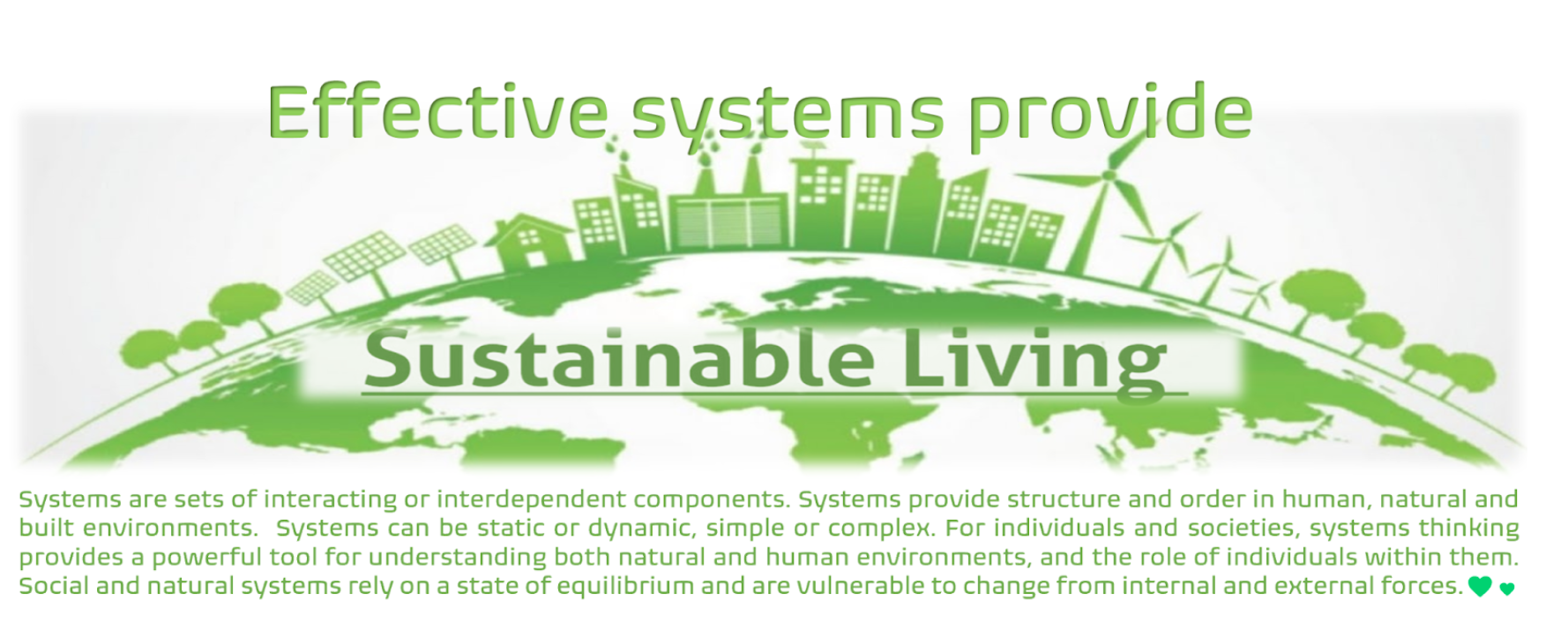
We will be looking at how effective systems can provide sustainable living.
This week we will be looking at:
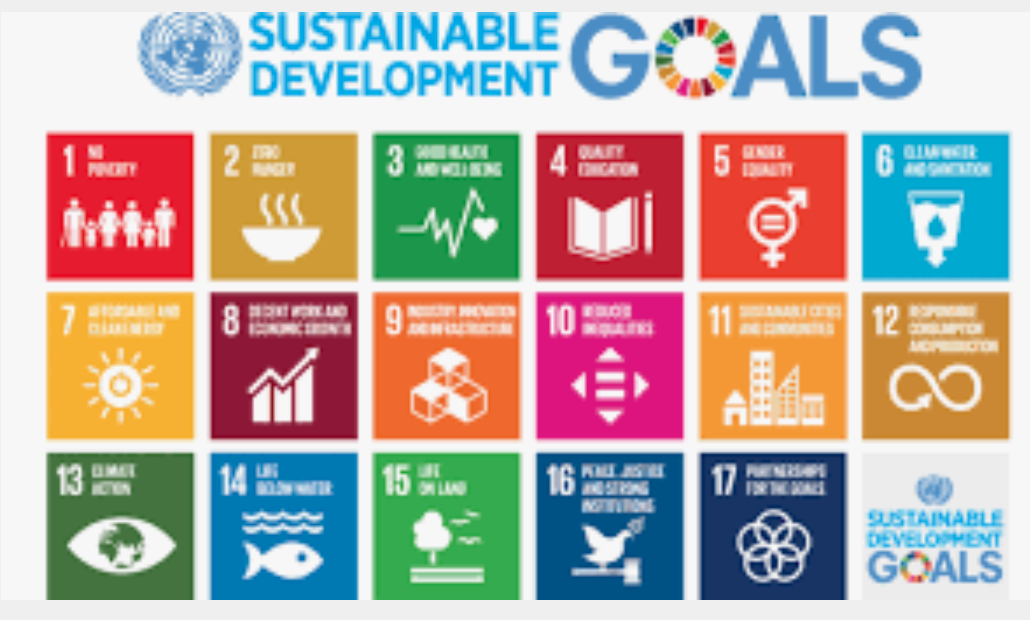
Context: How effective systems can provide sustainable living
EXPLORE / TŪHURA learning intentions:
- We are EXPLORING... We are EXPLORING by investigating the United Nations Sustainable Development Goals
- We are EXPLORING...by questioning what is sustainability with links to global issues and New Zealand.
- We are EXPLORING...effective systems and the impact on our lives
Learning Intentions: We are learning to (WALT)
- Understand the United Nations Sustainable Development Goals.
- Research the meaning of Sustainability
Success Criteria: I can/have...
- Understood the United Nations Sustainable Development Goals and I am able to explain how it relates to our context.
- Researched and able to explain to a buddy what sustainability is
- Activities to be completed on Monday during rostering:
- Go to our Google Classroom page, read the information on Sustainability and answer the questions in your Global Studies book.
- This will be discussed in class during our next session.
Only 2 sessions this week due to class trip to Kelly Tarltons. -
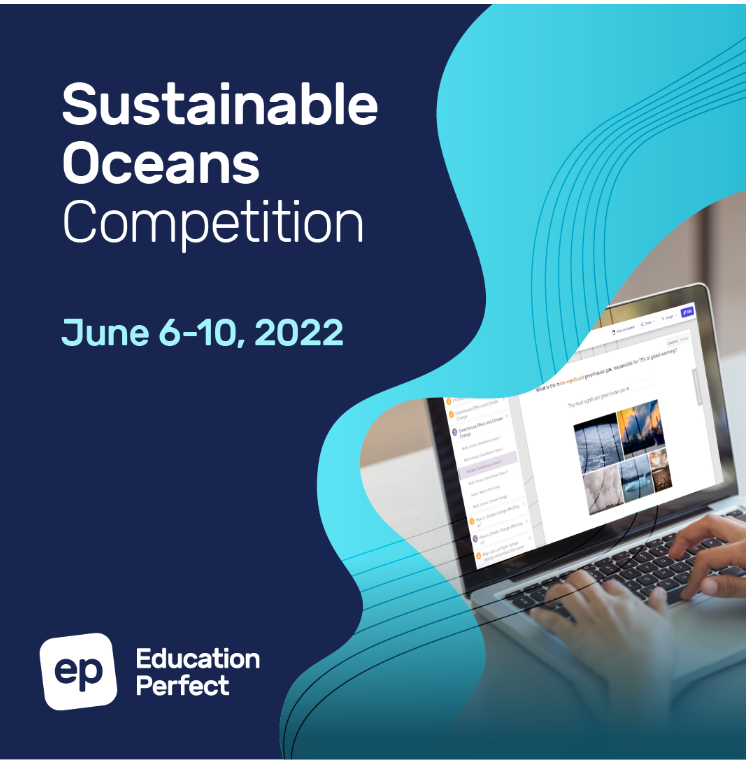
Individual prizes up for grabs are:
- 20 prizes of $150 in value
- $100 voucher for Dominoes Pizza
- Adopt a Manta Ray Pack
Class prizes include:
- Seven class prizes of $400 in value
- Adopt a Manta Ray Pack
- Pizza party to the value of $250 for your class
- Teacher resources: $100 Giftpay Voucher
What is the Sustainable Oceans Competition?
A competition based on our Sustainable Oceans content. Learn the content, answer questions, and help your students to use their knowledge for good.
Student Competition:
All students with an active EP account will be able to compete in the Sustainable Oceans student competition. If you do not have an active EP account, one will be set up for you after the registration form has been completed.When is it?
The Sustainable Oceans Competition will be held from 8 am 6th June to 4 pm 10th of June 2022.
Who can enter?
Open to all students across Australia and New Zealand. The content is aimed for Years 7 - 10.
A reminder to complete your brainstorm about our trip to Kelly Tarltons.
Only 1 session this week due to Queen's Birthday Public Holiday and Teacher Only Day. -
Kia ora 7C2,

Our focus this week is to examine the fishing industry in NewZealand and draw comparisons to Oceania.
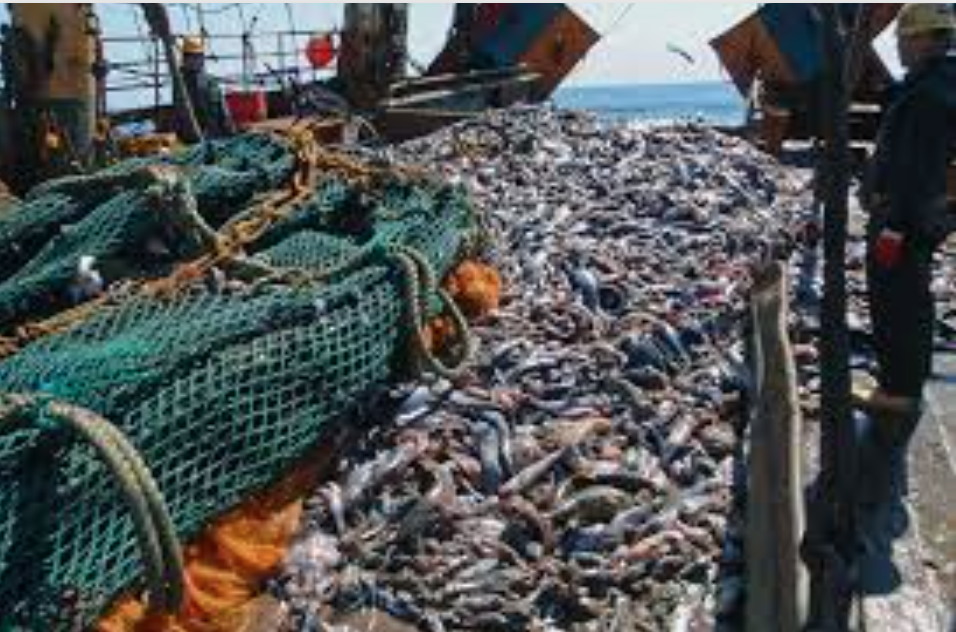
Learning Intentions: We are learning to (WALT)
- Explore various activities that contribute to the fishing industry in New Zealand.
- Research the impacts of the fishing industry in NZ
- Understand where our fish comes from and what are the main sources of fish we rely on
- Research whether people comply to laws and regulations in the fishing industry
Success Criteria: I can/have...
- Understood concepts and definitions that relate to the fishing industry in New Zealand
- Researched that fishing is both a commercial and tourism industry
- Examined in detail the social/ cultural/ economic/ environmental and political impacts of the fishing industry in NZ
- understood where our main sources of fish come from and how it is fished
- Examined whether people comply to laws and regulations in NZ
Resources:
Fishing industry in New Zealand - Wikipedia
https://www.youngoceanexplorers.com/Seafood in New Zealand
World Wildlife Fund: WWF - Endangered Species Conservation
Sustainable Fisheries:
https://www.wwf.org.nz/what_we_do/marine/sustainable_fisheries/Fishing industry – Te Ara Encyclopedia of New Zealand
Fishing rules | MPI - Ministry for Primary Industries. A New Zealand ...
https://www.mpi.govt.nz/travel-and-recreation/fishing/fishing-rules/Young Ocean Explorers:
-
Kia ora 7C2,
The Story of Matariki in Aotearoa | Māori New Year We will continue with your presentations today....

Our focus this week is to examine the fishing industry in NewZealand and draw comparisons to Oceania.
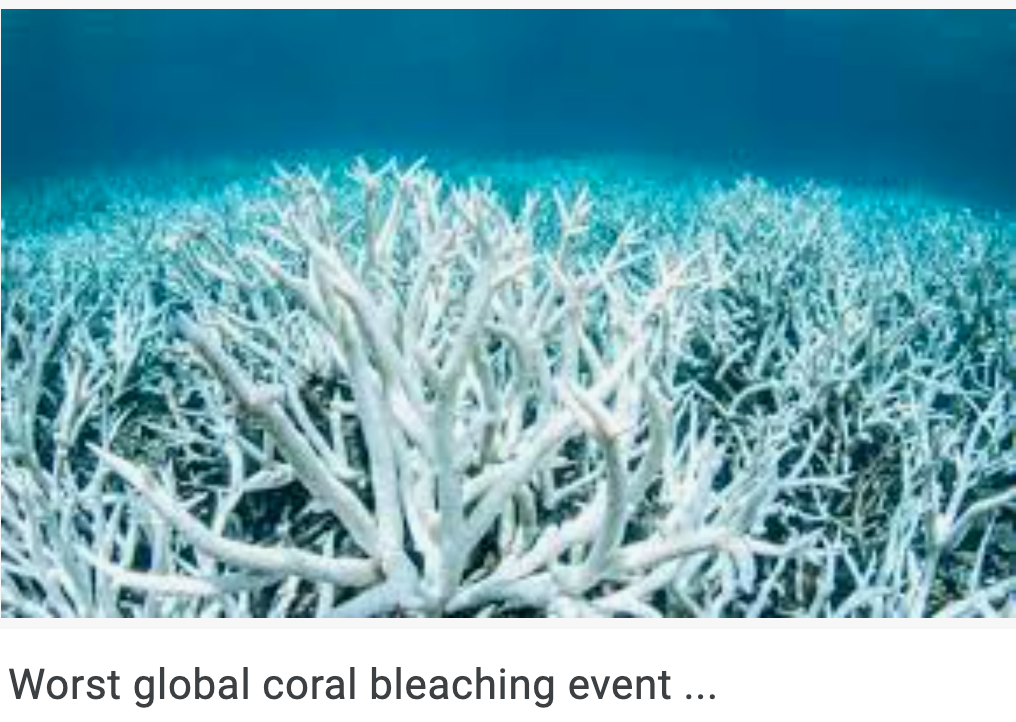
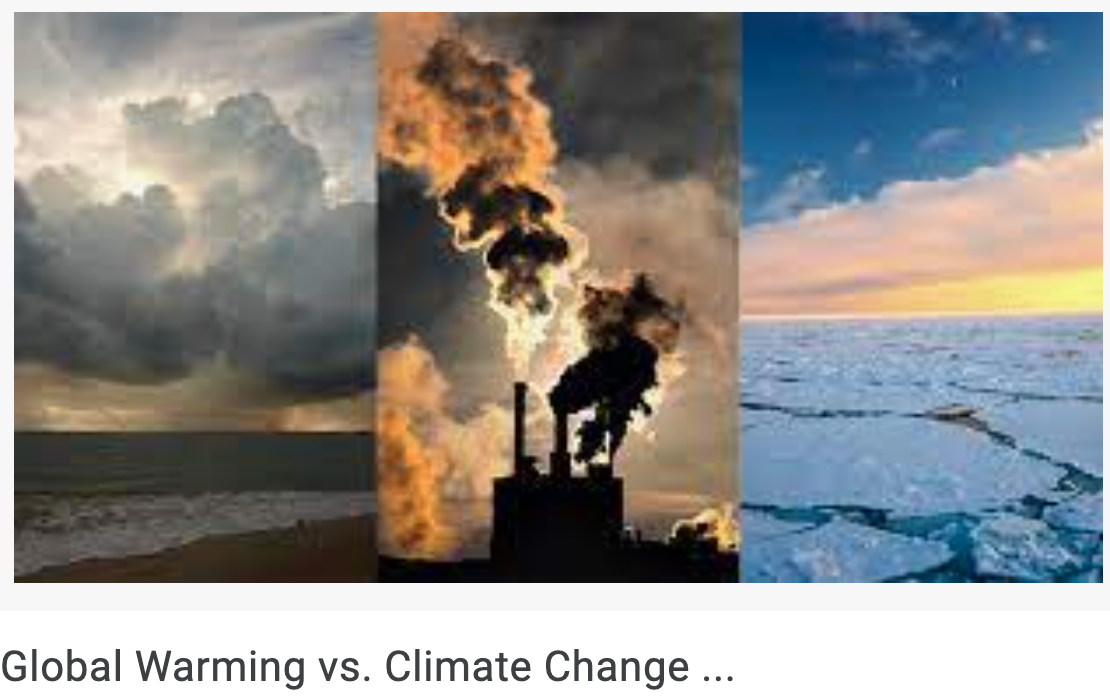
Learning Intentions: We are learning to (WALT)
- Explore various activities that contribute to the fishing industry in New Zealand.
- Research the impacts of the fishing industry in NZ
- Understand where our fish comes from and what are the main sources of fish we rely on
- Research whether people comply to laws and regulations in the fishing industry
Success Criteria: I can/have...
- Understood concepts and definitions that relate to the fishing industry in New Zealand
- Researched that fishing is both a commercial and tourism industry
- Examined in detail the social/ cultural/ economic/ environmental and political impacts of the fishing industry in NZ
- understood where our main sources of fish come from and how it is fished
- Examined whether people comply to laws and regulations in NZ
Resources:
Fishing industry in New Zealand - Wikipedia
https://www.youngoceanexplorers.com/Seafood in New Zealand
World Wildlife Fund: WWF - Endangered Species Conservation
Sustainable Fisheries:
https://www.wwf.org.nz/what_we_do/marine/sustainable_fisheries/Fishing industry – Te Ara Encyclopedia of New Zealand
Fishing rules | MPI - Ministry for Primary Industries. A New Zealand ...
https://www.mpi.govt.nz/travel-and-recreation/fishing/fishing-rules/Young Ocean Explorers:
-
Kia ora 7C2,

Learning Intentions: We are learning to (WALT)...
- Examine the positive and negative impacts of the fishing industry both in NZ.
- Determine ways to conserve and protect our sea-life that are exploited
- Understand whether aquariums and sea world offer protection or is an economic avenue for tourism.
- Attended the field trip to Kelly Tarltons and observed carefully the role this aquarium has for sea -life.
Success Criteria: I can/have...
- Understood that the fishing industry is a very important for economic growth
- Examined that fishing is heavily exploited and there are many environmental challenges caused by the fishing industry
- Determined ways to protect and conserve Marine life
- Attended field trip to Kelly Tarltons and reported my key observations on sustainability and conservation
Activities: Research ideas for the case of New Zealand
- By working in groups of three create an infographic on the positive impacts the fishing industry brings to New Zealand. For this use images/ graphs and newspaper articles to show the benefits it has. Think of economic rewards/ tourism cultural and social benefits here.
- Research the harmful effects of overfishing and the negative impacts the fishing industry may impose.Think of the environmental problems and consequences long term.
- Research articles that show how people may protest to support the protection of marine life.
- Think of ways you would protect and preserve marine life in New Zealand.
- Resources:
Recreational Fishing in New Zealand: A Billion Dollar Industry
NZ fishing industry shrinking - Business - NZ Herald News
The effects of human impacts on the marine environment | Ministry for ...
Search ResultsTrue impact of New Zealand's fisheries unknown, WWF | WWF New ...
www.wwf.org.nz/?1620: -
Kia ora 7C2,
We will complete all presentations this week on the Impacts of Overfishing in New Zealand.

-
Kia ora 7C2,
Welcome back. I hope that you've all had a wonderful break.
This week we will be recapping on the UN Goals - looking at the first 8 goals below.

EXPLORE / TŪHURA learning intentions:
- We are EXPLORING... by investigating the United Nations Sustainable Development Goals 1-8
- We are EXPLORING...by questioning what is sustainability with links to the identified goals.
- We are EXPLORING and developing a list of vocabulary and definitions, based on the identified goals.
Learning Intentions: I am learning to...
- Increase my awareness and knowledge of the SDG's
- Think about New Zealand's progress towards achieving the SDG's
- Think about how I can help to achieve the SDG's in my community.
Success Criteria: I am/can/have...
- aware of and have knowledge of the SDG's
- explain New Zealand's progress towards achieving the SDG's
- talk aboout how I can help to achieve the SDG's in my community.
Below is a list of groups and the goals that you will be working on during our first week back, to ensure that we all have pre-knowledge and a recap of work completed in Term 2.
Goal 1:Reem, Sindhu, Dan
Goal 2: Elva, Tanvi, Keanu, Tyrell
Goal 3:Xavier, Emily, Kayla
Goal 4:Taelyn, Janhavi, Katie, Gavin
Goal 5:Delicia, Glennah, Keeran
Goal 6: Tsung Wai, Makayla, Rohan, Lucas
Goal 7:Vibhi, Lipika, Saihaj
Goal 8:Sanmeet, Callum, Zirui
Working in the groups listed above, you are required to use Google Slides presentation to:
Research your allocated goal and write a brief explanation of what your goal means, in simple language - so that the rest of the class gains a better understanding of the meaning.
Create a list of vocabulary - of at least 10 words and their meanings - related to your goal.
List in your own words, all the actions that your group thinks that you need to take to achieve your allocated goal by 2030.
Use one authentic (real life) example from your list above to explain in more detail what actions you could take to achieve your goal.
Include visual images to enhance the understanding of your goal.
Each person in the group must also create one slide of your own, as part of the presentation to add any information and images that you would like to about your goal. Remember to include your name on your slide.
Each group will be presenting to the class at the start of our session on Monday, Week 2.
Please ensure that you all have access to your group presentation.
Group meetings today:
Please get permission from the relief teacher and then meet with me via Google Classroom at your allocated time. Please ensure that your camera is on and that your computer is on mute.
11:00am - Uday and Mrs Hoosen
11:10am - Goal 1:Reem, Sindhu, Dan
11:15am - Goal 2: Elva, Tanvi, Keanu, Tyrell
11:20am - Goal 3:Xavier, Emily, Kayla
11:25am - Goal 4:Taelyn, Janhavi, Katie, Gavin
11.30am - Goal 5:Delicia, Glennah, Keeran
11.35am - Goal 6: Tsung Wai, Makayla, Rohan, Lucas
11.40am - Goal 7:Vibhi, Lipika, Saihaj
11.45am -Goal 8:Sanmeet, Callum, Zirui
-
Kia ora 7C2,
You will be completing your presentations this week.
Learning Intentions: I am learning to...
- Increase my awareness and knowledge of the SDG's
- Think about New Zealand's progress towards achieving the SDG's
- Think about how I can help to achieve the SDG's in my community.
Success Criteria: I am/can/have...
- aware of and have knowledge of the SDG's
- explain New Zealand's progress towards achieving the SDG's
- talk aboout how I can help to achieve the SDG's in my community.

EXPLORE / TŪHURA learning intentions:
- We are EXPLORING... by investigating the United Nations Sustainable Development Goals 1-8
- We are EXPLORING...by questioning what is sustainability with links to the identified goals.
- We are EXPLORING and developing a list of vocabulary and definitions, based on the identified goals.
Below is a list of groups and the goals that you will be working on during our first week back, to ensure that we all have pre-knowledge and a recap of work completed in Term 2.
Goal 1:Reem, Sindhu, Dan
Goal 2: Elva, Tanvi, Keanu, Tyrell
Goal 3:Xavier, Emily, Kayla
Goal 4:Taelyn, Janhavi, Katie, Gavin
Goal 5:Delicia, Glennah, Keeran
Goal 6: Tsung Wai, Makayla, Rohan, Lucas
Goal 7:Vibhi, Lipika, Saihaj
Goal 8:Sanmeet, Callum, Zirui
Working in the groups listed above, you are required to use Google Slides presentation to:
Research your allocated goal and write a brief explanation of what your goal means, in simple language - so that the rest of the class gains a better understanding of the meaning.
Create a list of vocabulary - of at least 10 words and their meanings - related to your goal.
List in your own words, all the actions that your group thinks that you need to take to achieve your allocated goal by 2030.
Use one authentic (real life) example from your list above to explain in more detail what actions you could take to achieve your goal.
Include visual images to enhance the understanding of your goal.
Each person in the group must also create one slide of your own, as part of the presentation to add any information and images that you would like to about your goal. Remember to include your name on your slide.
Each group will be presenting to the class at the start of our session on Monday, Week 2.
Please ensure that you all have access to your group presentation.
-
Kia ora 7C2,
This week, we begin our introduction to:
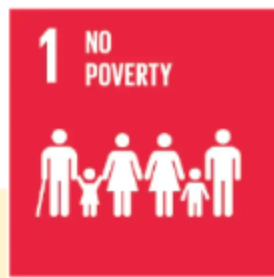
Poverty can be defined as a lack of money and/or vital resources which renders it impossible or challenging for human beings to live with dignity and provide for themselves.
Worldwide, 836 million people still live in extreme poverty. The 2 most affected regions are SubSaharan Africa and South Asia. In these regions, 70% of the global population lives under the poverty line.
Learning Intentions: I am learning to...
- Find the definition for vocabulary related to the UN SDG - No Poverty
- Gain a deeper understanding of the UN SDG - No Poverty -and its impacts in the real world
Success Criteria: I am/can/have...
- Find the definition for vocabulary related to the UN SDG - No Poverty
- Gain a deeper understanding of the UN SDG - No Poverty -and its impacts in the real world
EXPLORE / TŪHURA learning intentions:
- We are EXPLORING... by investigating the United Nations Sustainable Development Goals No Poverty
- We are EXPLORING and developing a list of vocabulary and definitions, based on the No Poverty goals
- We are EXPLORING...by researching examples of poverty related to the No Poverty goal.


A reminder, a copy of the slideshow has been created for each of you on Google Classroom. This is your workbook for our context, including for your project and assessment.
-
Kia ora 7C2,
This week, we will continue using our graphic organiser to work on our SDG :

A reminder that Poverty can be defined as a lack of money and/or vital resources which renders it impossible or challenging for human beings to live with dignity and provide for themselves.
Worldwide, 836 million people still live in extreme poverty. The 2 most affected regions are SubSaharan Africa and South Asia. In these regions, 70% of the global population lives under the poverty line.
Learning Intentions: I am learning to...
- Find the definition for vocabulary related to the UN SDG - No Poverty
- Gain a deeper understanding of the UN SDG - No Poverty -and its impacts in the real world
Success Criteria: I am/can/have...
- Find the definition for vocabulary related to the UN SDG - No Poverty
- Gain a deeper understanding of the UN SDG - No Poverty -and its impacts in the real world
EXPLORE / TŪHURA learning intentions:
- We are EXPLORING... by investigating the United Nations Sustainable Development Goals No Poverty
- We are EXPLORING and developing a list of vocabulary and definitions, based on the No Poverty goals
- We are EXPLORING...by researching examples of poverty related to the No Poverty goal.

-
Kia ora 7C2,
This week, we will continue using our graphic organiser to work on our SDG .

The Zero Hunger Challenge was launched by United Nations Secretary-General Ban Ki-moon in 2012. The Zero Hunger vision reflects five elements from within the SDGs, which taken together, can end hunger, eliminate all forms of malnutrition, and build inclusive and sustainable food systems.
Learning Intentions: I am learning to...
- Find the definition for vocabulary related to the UN SDG - Zero Hunger
- Gain a deeper understanding of the UN SDG - Zero Hunger-and its impacts in the real world
Success Criteria: I am/can/have...
- Find the definition for vocabulary related to the UN SDG - Zero Hunger
- Gain a deeper understanding of the UN SDG - Zero Hunger -and its impacts in the real world
EXPLORE / TŪHURA learning intentions:
- We are EXPLORING... by investigating the United Nations Sustainable Development Goals Zero Hunger
- We are EXPLORING and developing a list of vocabulary and definitions, based on the Zero Hunger goals
- We are EXPLORING...by researching examples of hunger related to the Zero Hunger goal.
We will also do a bus stop activity to share our ideas!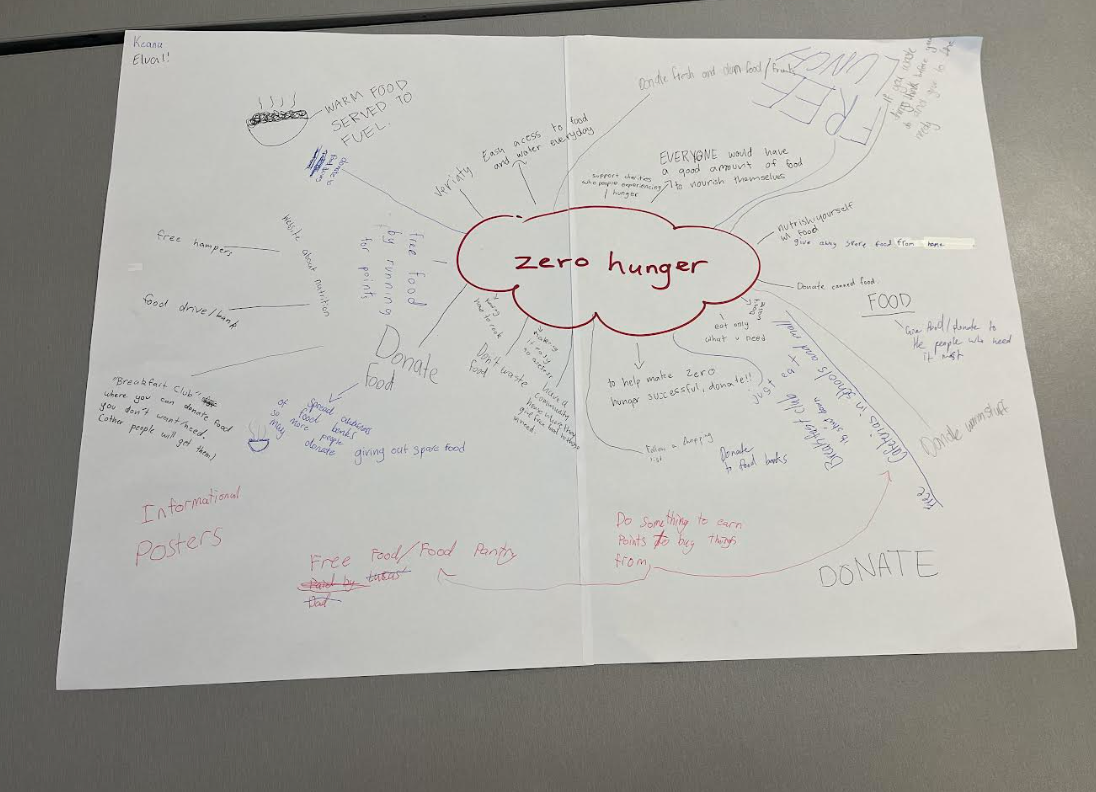
-
Kia ora 7C2,
This week we will....
 Students to complete the doc in Google Classroom.I’ve created a doc for all students. You may work in your groups - to complete this doc, but please ensure that you each complete your own copy of this doc, which we will be link to your slide show on Thursday during Global Studies.
Students to complete the doc in Google Classroom.I’ve created a doc for all students. You may work in your groups - to complete this doc, but please ensure that you each complete your own copy of this doc, which we will be link to your slide show on Thursday during Global Studies.EXPLORE / TŪHURA learning intentions:
- We are EXPLORING... by researching your identified goal, in relation to the community issue that you have selected.
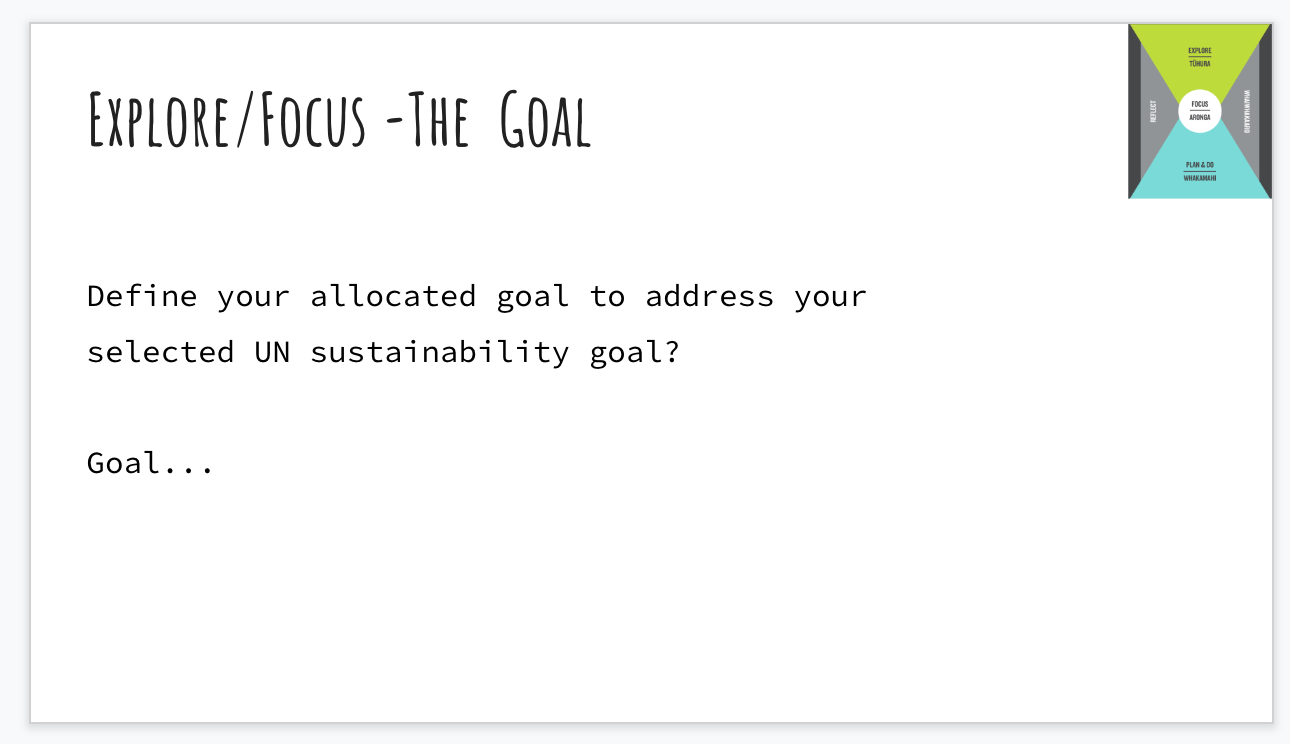

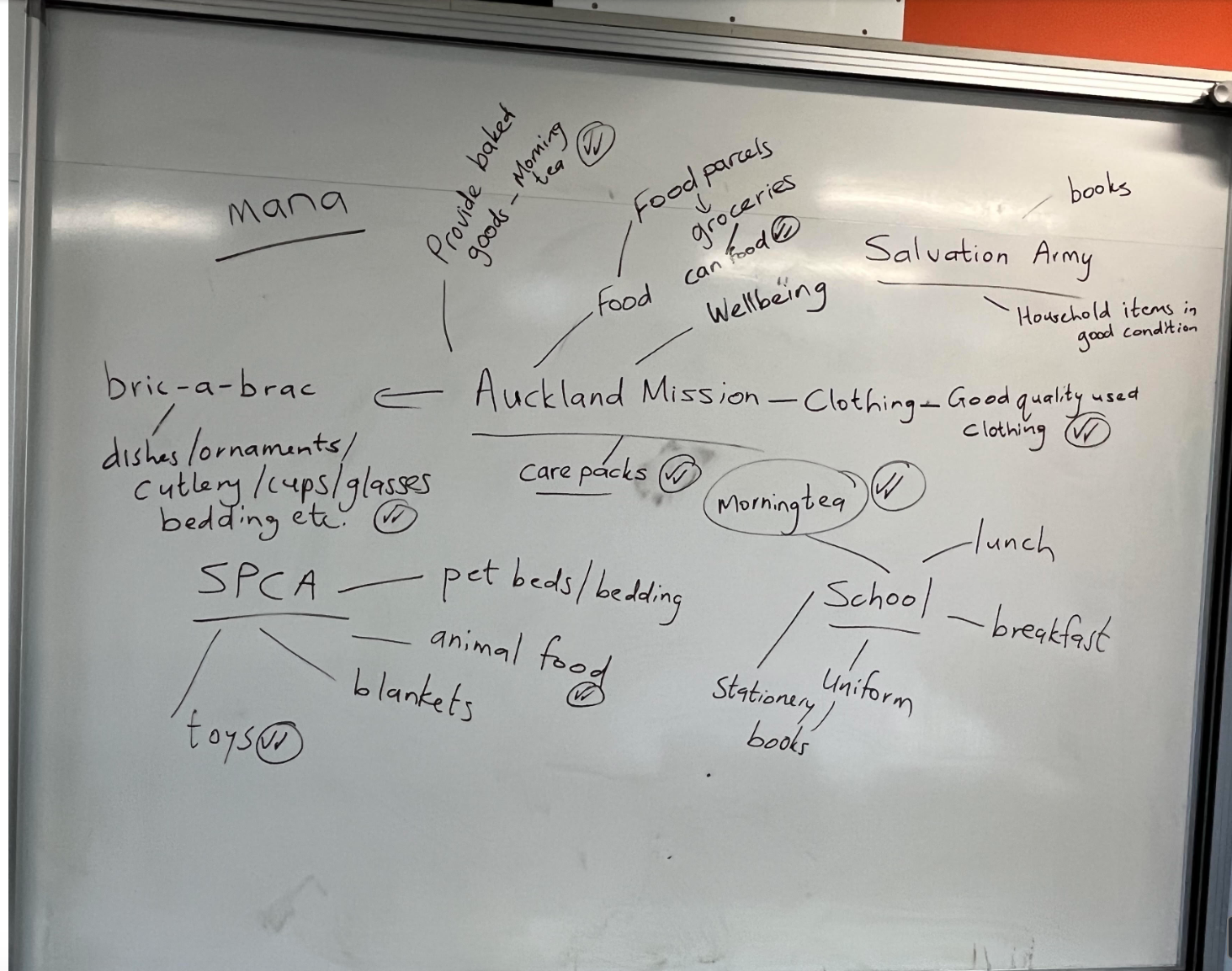
-
Kia ora 7C2,Please ensure that you complete the work below during your session on Thursday.
EXPLORE / TŪHURA learning intentions:
- We are EXPLORING... by researching your identified goal, in relation to the community issue that you have selected.
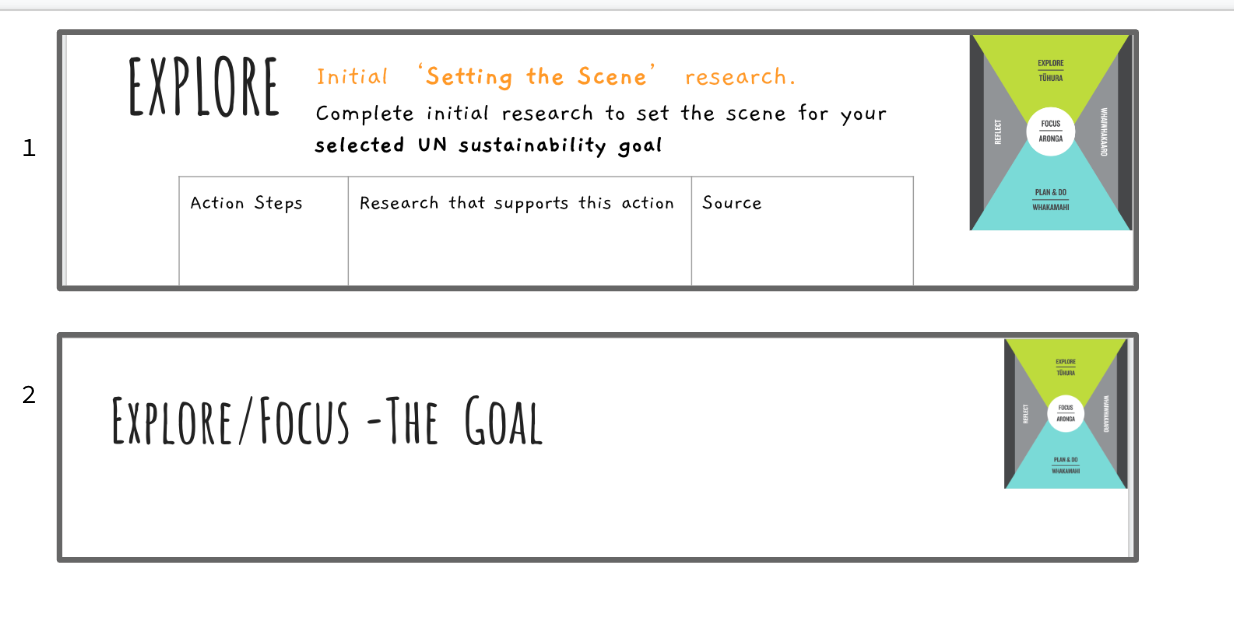
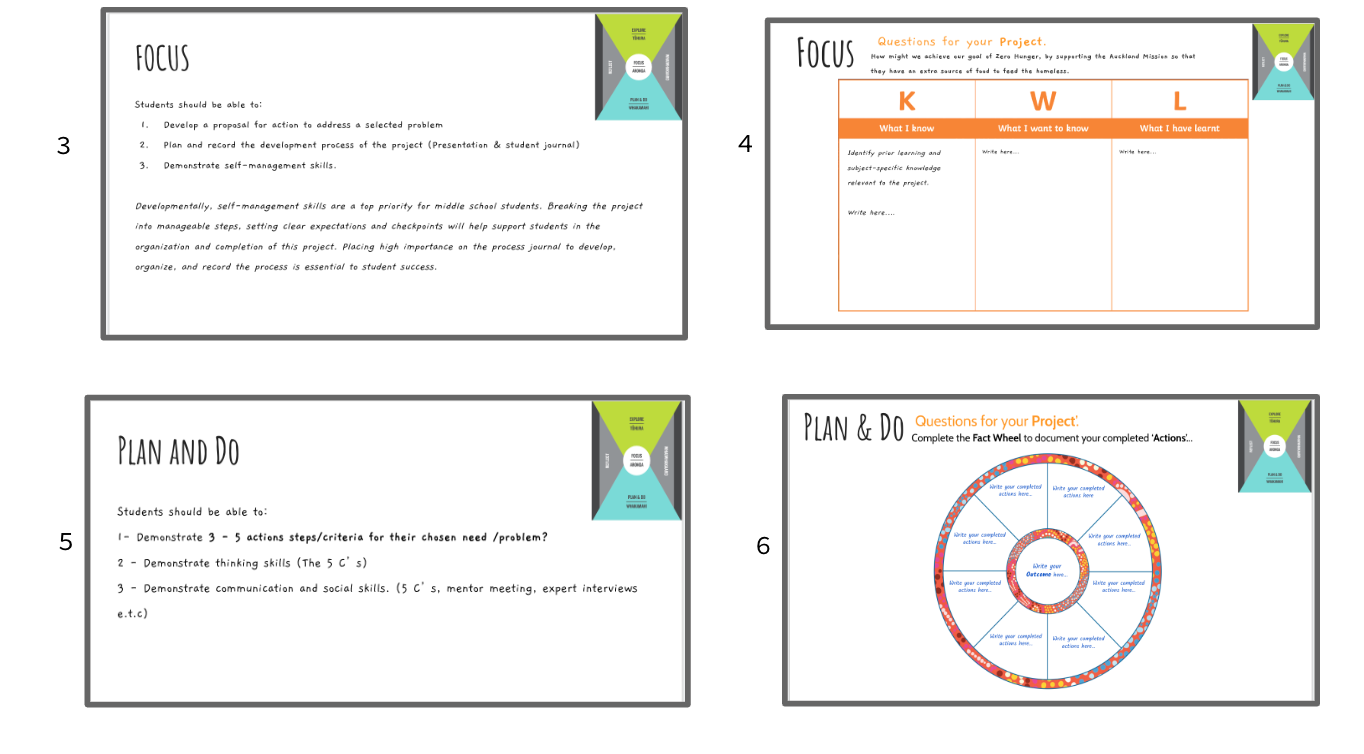
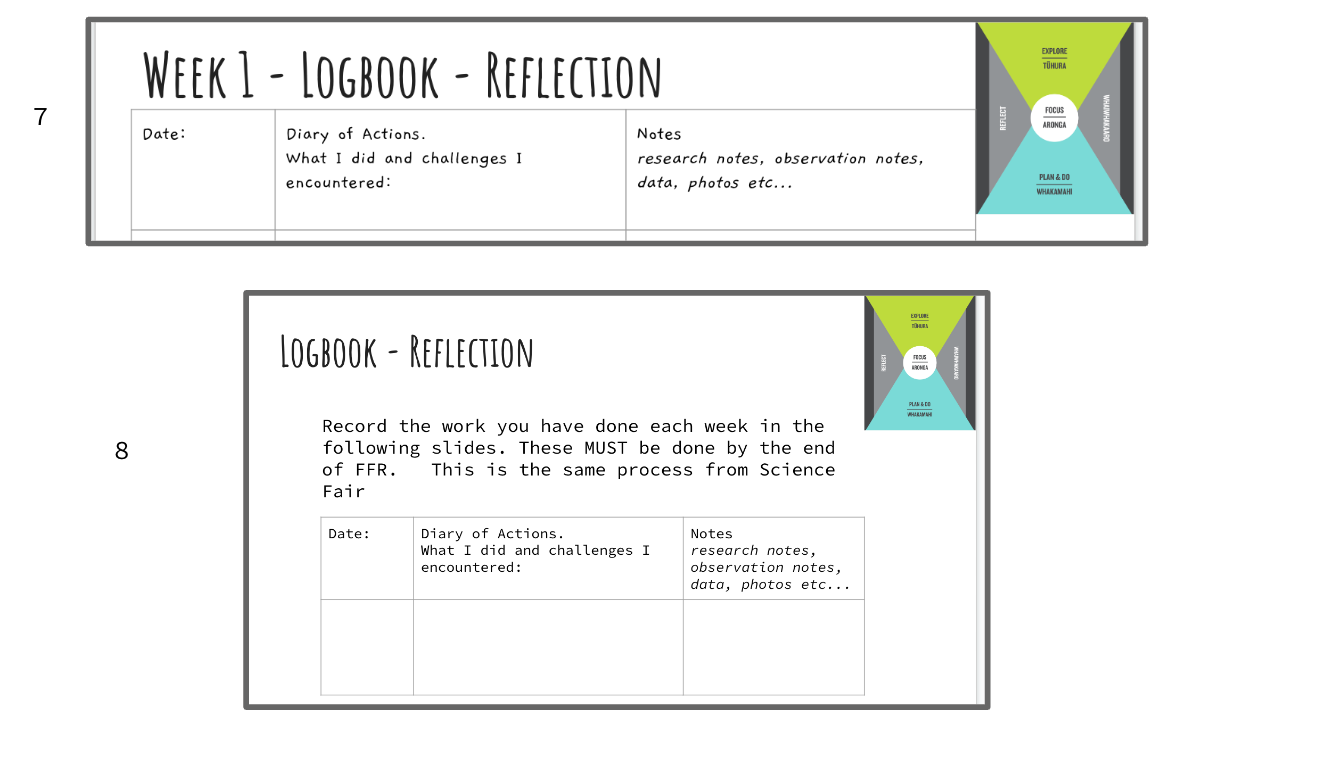
Please add any incomplete work to your Logbook for Week 2 to be completed during FFR time on Friday. -
Kia ora 7C2,It was very sad to hear about the passing of the Queen last week Friday.
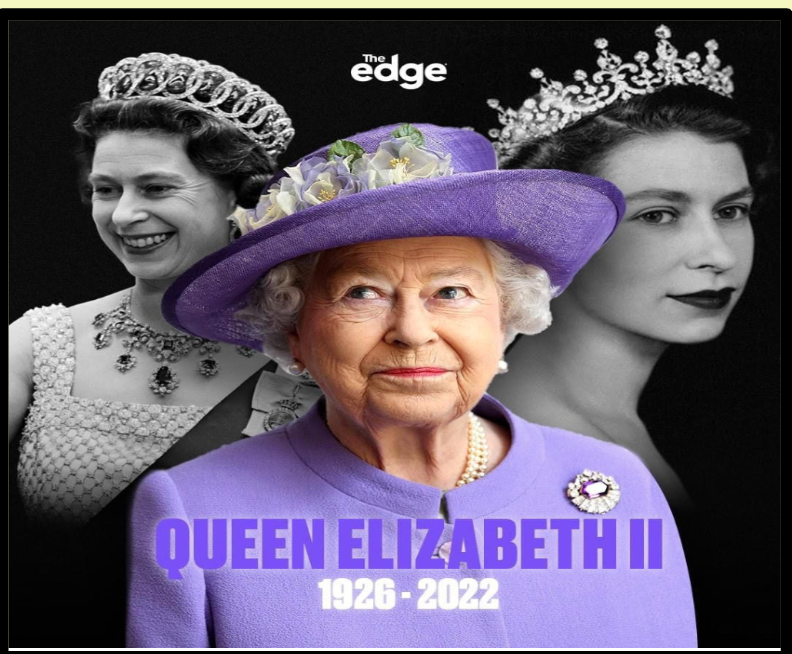 On Monday, we will continue with any of our work from last week, that you did not complete during FFR
On Monday, we will continue with any of our work from last week, that you did not complete during FFREXPLORE / TŪHURA learning intentions:
- We are EXPLORING... by researching your identified goal, in relation to the community issue that you have selected.
- On Tuesday we have guest speakers from "Beyond Water."
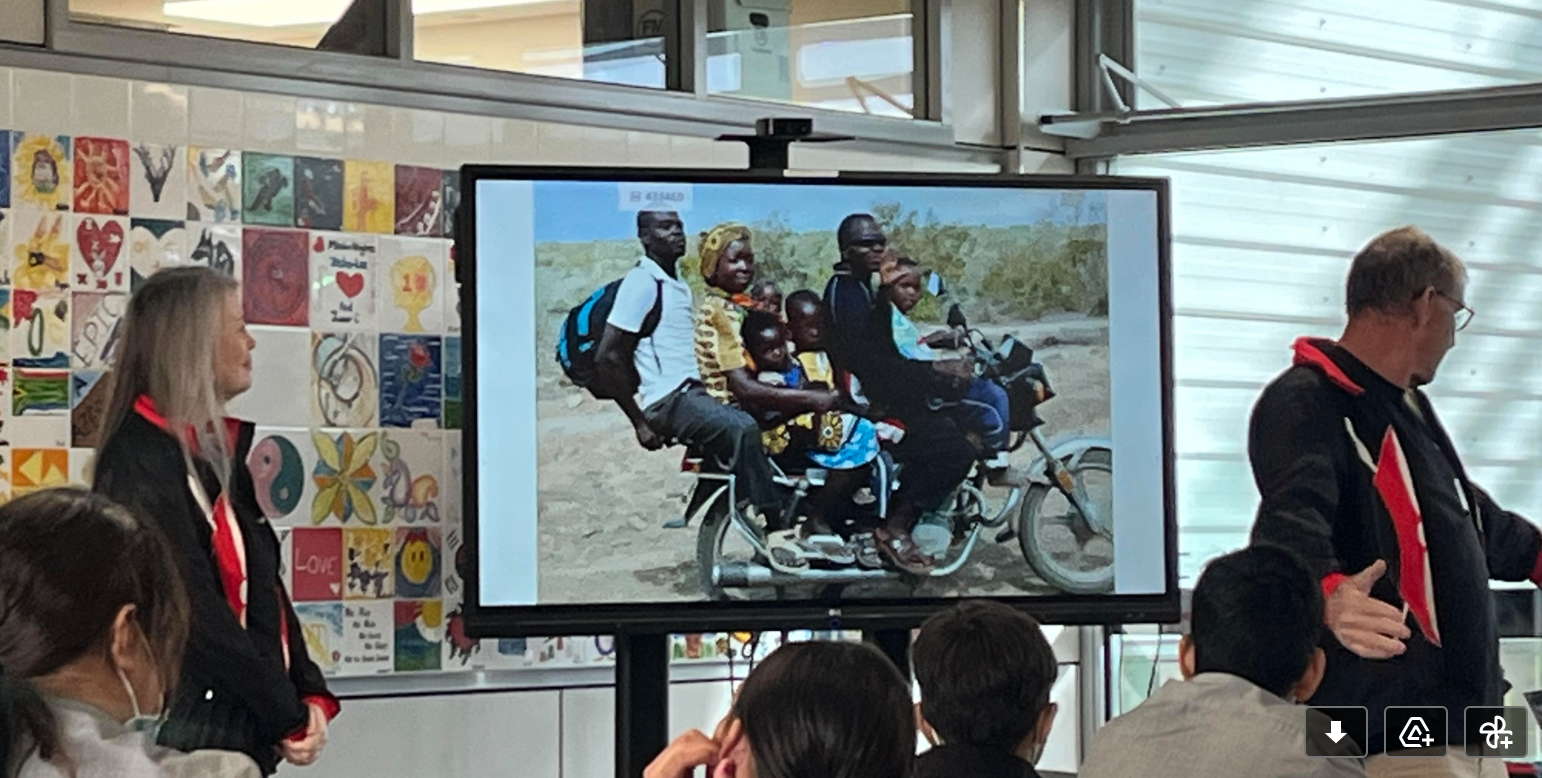
Teacher Only Day on Thursday for your SLC.
-
Kia ora 7C2,
This week, we will be discussing your assessment task which you will only be submitting in Term 4. It's important that we discuss it and look at your group responsibilities, so that we are well organised when we get back in Term 4.
Link to brainstorm website: https://www.
mindmeister.com/ 

Work to focus on during FFR this week
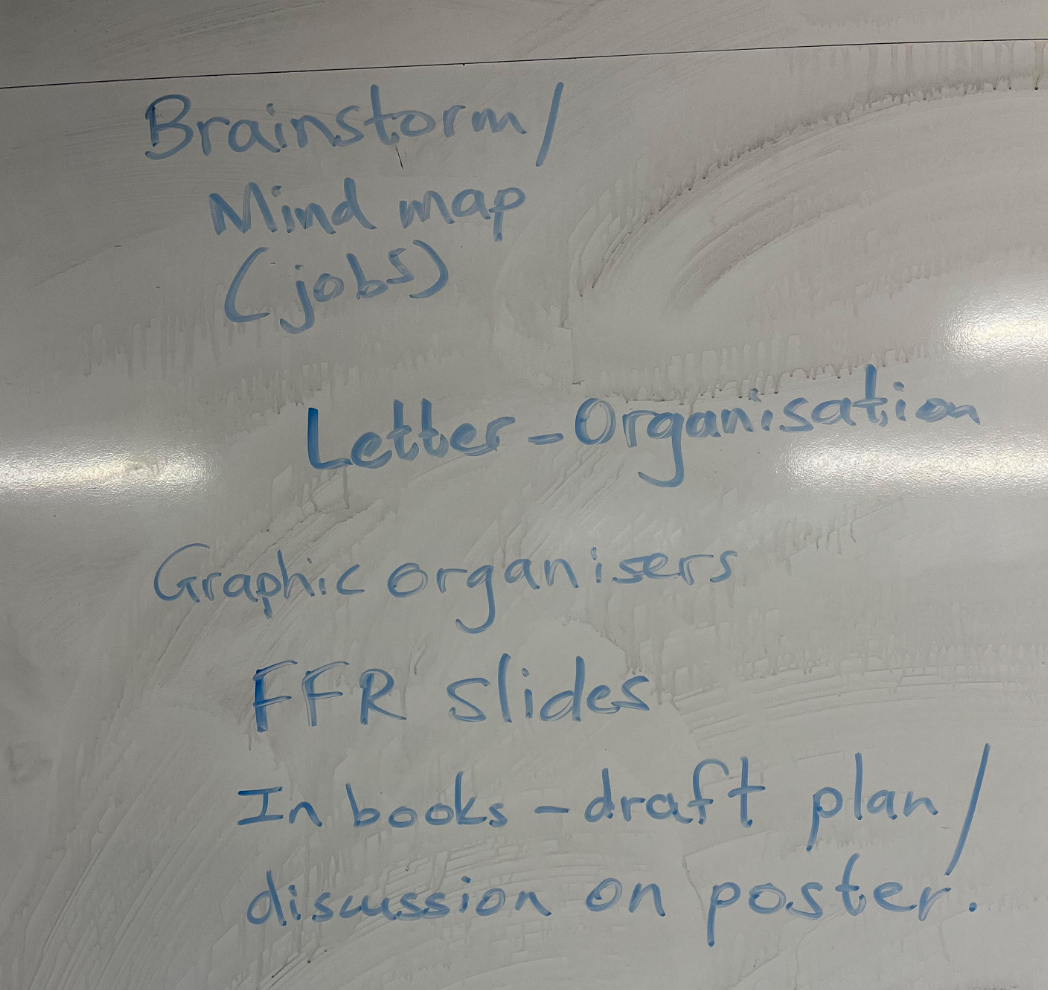
Integrated English and Global Y7 Assessment
(To be completed at the start of Term 3)
Achievement Objectives L4
Global Studies
Understand how people make decisions about access to and use of resources
Understand how formal and informal groups make decisions that impact on communities
Understand how people participate individually and collectively in response to community challenges
English
uses a range of oral, written, and visual features to create meaning and effectand to sustain interest
constructs texts that show an awareness of purpose and audience through deliberate choice of content, language, and text form
Learning Context
As part of our context, Relationships have Consequences that allow Societies to Thrive/Succeed, you have been learning about some critical issues affecting lives in New Zealand and parts of the world. In particular, we have focused on the United Nations Sustainable Development Goals (Zero Hunger and No Poverty). In Global Studies, we have been exploring and researching the issues of hunger and poverty, and how we can make a positive impact to improve lives. In English, you have been learning about communicating effectively through verbal and visual language, mainly focusing on the power of static images.
Assessment Task
Collaborating in a group of up to three members, you are required to apply your knowledge and skills of research and static image to make a visual presentation to campaign for the social action you intend to take for your UN SDG project.
Your visual presentation needs to contain the following:
1. Title. Tell your audience what you are campaigning about. In other words, what you want to achieve.
2. Issue/s you are trying to address. What is the problem? Why is it a problem? What needs to be changed?
3. Solution. What action should you take? Who will be involved? What will be their roles? Is your solution practical? Why would things be better after the proposed action?
4. Static image features which support your texts.
5. Your presentation can be either digital or on an A3/4 size paper, be a poster or a pamphlet.
Criteria
WORKING TOWARDS Curriculum expectation
Working AT curriculum expectation
Working ABOVE curriculum expectation
Working BEYOND curriculum expectation
Gathering of relevant information/evidence
You have attempted to gather some relevant information from a source provided to you
You have gathered some relevant information from a source provided to you
You have gathered relevant information from a source provided to you
You have gathered relevant information from a self identified source and use this to attempt to note take in your own words
Collaboration
You have yet to co-operate and participate in your group
You have an understanding of the role you were responsible for in your group
You have participated by fulfilling the role you were responsible for in your group
You have worked cooperatively and participated by fulfilling the role you were responsible for in your group
Purpose and Audience
You are developing awareness of the purpose and audience
You have demonstrated awareness of the purpose and audience
You have identified and demonstrated awareness of the purpose and audience
You have consistently demonstrated an awareness of the purpose and audience
Language Features Range
You are developing awareness of a limited range of oral, written, and visual language features.
You are starting to develop use of a wide range of oral, written, and visual language features.
You are starting to develop use of a wide range of oral, written, and visual language features to create meaning and effect and to sustain interest.
You are developing understanding of how to use a wide range of oral, written, and visual language features to create meaning and effect and to sustain interest.
Time Management
You have yet to complete and submit your assessment
You have submitted your assessment late.
You have submitted your assessment by the date, 27 October 2022
You have submitted your assessment by the date, 27 October 2022
Overall
WORKING TOWARDS Curriculum expectation
Working AT curriculum expectation
Working ABOVE curriculum expectation
Working BEYOND curriculum expectation
Assessing students’ ability to explain a social issue and to participate in social actions.
-
Kia ora 7C2,
We have a short week, before closing school at 1pm for the school holidays.

On Tuesday we will be learning about the Chinese National Holiday.
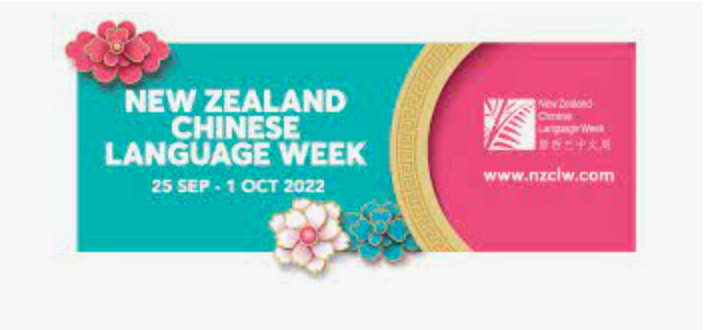
https://nationaltoday.com/chinese-national-day/


Are there any similarities to our celebration of Waitangi Day in New Zealand and the Chinese National Day in China?
During our session on Thursday we will be joing 7C1 in a Skype meeing with our sister school in Nanjing, Jinling High School Xianlin Campus.
Happy holidays everyone!

See you back at school at the start of Term 4 - Monday 17 October.
-
Kia ora 7C2,
Welcome to Term 4! I hope that you've all had an amazing break!
This week, you will be working on your assessment task which you will only be submitting next week Tuesday - at the start of our session.
As already discussed, please refer to the rubric below. Please see me if you have any questions or if you require any support.

Integrated English and Global Y7 Assessment
Achievement Objectives L4
Global Studies
Understand how people make decisions about access to and use of resources
Understand how formal and informal groups make decisions that impact on communities
Understand how people participate individually and collectively in response to community challenges
English
uses a range of oral, written, and visual features to create meaning and effectand to sustain interest
constructs texts that show an awareness of purpose and audience through deliberate choice of content, language, and text form
Learning Context
As part of our context, Relationships have Consequences that allow Societies to Thrive/Succeed, you have been learning about some critical issues affecting lives in New Zealand and parts of the world. In particular, we have focused on the United Nations Sustainable Development Goals (Zero Hunger and No Poverty). In Global Studies, we have been exploring and researching the issues of hunger and poverty, and how we can make a positive impact to improve lives. In English, you have been learning about communicating effectively through verbal and visual language, mainly focusing on the power of static images.
Assessment Task
Collaborating in a group of up to three members, you are required to apply your knowledge and skills of research and static image to make a visual presentation to campaign for the social action you intend to take for your UN SDG project.
Your visual presentation needs to contain the following:
1. Title. Tell your audience what you are campaigning about. In other words, what you want to achieve.
2. Issue/s you are trying to address. What is the problem? Why is it a problem? What needs to be changed?
3. Solution. What action should you take? Who will be involved? What will be their roles? Is your solution practical? Why would things be better after the proposed action?
4. Static image features which support your texts.
5. Your presentation can be either digital or on an A3/4 size paper, be a poster or a pamphlet.
Criteria
WORKING TOWARDS Curriculum expectation
Working AT curriculum expectation
Working ABOVE curriculum expectation
Working BEYOND curriculum expectation
Gathering of relevant information/evidence
You have attempted to gather some relevant information from a source provided to you
You have gathered some relevant information from a source provided to you
You have gathered relevant information from a source provided to you
You have gathered relevant information from a self identified source and use this to attempt to note take in your own words
Collaboration
You have yet to co-operate and participate in your group
You have an understanding of the role you were responsible for in your group
You have participated by fulfilling the role you were responsible for in your group
You have worked cooperatively and participated by fulfilling the role you were responsible for in your group
Purpose and Audience
You are developing awareness of the purpose and audience
You have demonstrated awareness of the purpose and audience
You have identified and demonstrated awareness of the purpose and audience
You have consistently demonstrated an awareness of the purpose and audience
Language Features Range
You are developing awareness of a limited range of oral, written, and visual language features.
You are starting to develop use of a wide range of oral, written, and visual language features.
You are starting to develop use of a wide range of oral, written, and visual language features to create meaning and effect and to sustain interest.
You are developing understanding of how to use a wide range of oral, written, and visual language features to create meaning and effect and to sustain interest.
Time Management
You have yet to complete and submit your assessment
You have submitted your assessment late.
You have submitted your assessment by the date, 25 October 2022
You have submitted your assessment by the date, 25 October 2022
Overall
WORKING TOWARDS Curriculum expectation
Working AT curriculum expectation
Working ABOVE curriculum expectation
Working BEYOND curriculum expectation
Assessing students’ ability to explain a social issue and to participate in social actions.
-
Kia ora 7C2,
During this weeks students will be given the opportunity tp present their assessment poster to the class.
As already discussed, please refer to the rubric below. Please see me if you have any questions or if you require any support.
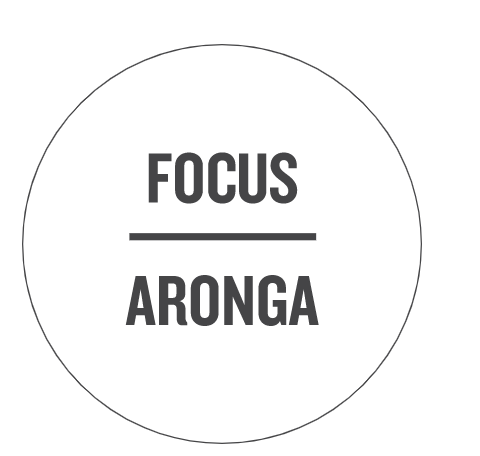
Integrated English and Global Y7 Assessment
Achievement Objectives L4
Global Studies
Understand how people make decisions about access to and use of resources
Understand how formal and informal groups make decisions that impact on communities
Understand how people participate individually and collectively in response to community challenges
English
uses a range of oral, written, and visual features to create meaning and effectand to sustain interest
constructs texts that show an awareness of purpose and audience through deliberate choice of content, language, and text form
Learning Context
As part of our context, Relationships have Consequences that allow Societies to Thrive/Succeed, you have been learning about some critical issues affecting lives in New Zealand and parts of the world. In particular, we have focused on the United Nations Sustainable Development Goals (Zero Hunger and No Poverty). In Global Studies, we have been exploring and researching the issues of hunger and poverty, and how we can make a positive impact to improve lives. In English, you have been learning about communicating effectively through verbal and visual language, mainly focusing on the power of static images.
Assessment Task
Collaborating in a group of up to three members, you are required to apply your knowledge and skills of research and static image to make a visual presentation to campaign for the social action you intend to take for your UN SDG project.
Your visual presentation needs to contain the following:
1. Title. Tell your audience what you are campaigning about. In other words, what you want to achieve.
2. Issue/s you are trying to address. What is the problem? Why is it a problem? What needs to be changed?
3. Solution. What action should you take? Who will be involved? What will be their roles? Is your solution practical? Why would things be better after the proposed action?
4. Static image features which support your texts.
5. Your presentation can be either digital or on an A3/4 size paper, be a poster or a pamphlet.
Criteria
WORKING TOWARDS Curriculum expectation
Working AT curriculum expectation
Working ABOVE curriculum expectation
Working BEYOND curriculum expectation
Gathering of relevant information/evidence
You have attempted to gather some relevant information from a source provided to you
You have gathered some relevant information from a source provided to you
You have gathered relevant information from a source provided to you
You have gathered relevant information from a self identified source and use this to attempt to note take in your own words
Collaboration
You have yet to co-operate and participate in your group
You have an understanding of the role you were responsible for in your group
You have participated by fulfilling the role you were responsible for in your group
You have worked cooperatively and participated by fulfilling the role you were responsible for in your group
Purpose and Audience
You are developing awareness of the purpose and audience
You have demonstrated awareness of the purpose and audience
You have identified and demonstrated awareness of the purpose and audience
You have consistently demonstrated an awareness of the purpose and audience
Language Features Range
You are developing awareness of a limited range of oral, written, and visual language features.
You are starting to develop use of a wide range of oral, written, and visual language features.
You are starting to develop use of a wide range of oral, written, and visual language features to create meaning and effect and to sustain interest.
You are developing understanding of how to use a wide range of oral, written, and visual language features to create meaning and effect and to sustain interest.
Time Management
You have yet to complete and submit your assessment
You have submitted your assessment late.
You have submitted your assessment by the date, 25 October 2022
You have submitted your assessment by the date, 25 October 2022
Overall
WORKING TOWARDS Curriculum expectation
Working AT curriculum expectation
Working ABOVE curriculum expectation
Working BEYOND curriculum expectation
Assessing students’ ability to explain a social issue and to participate in social actions.
-
Kia ora 7C2,
During this week we will be focussing on promoting our Auckland Mission cans drive, household items and the collections for the SPCA.

This is your blurb when visiting classes:
My name is...... and this is.....Please help 7C2 and Coast Whanau support the Auckland City Mission and the SPCA.
Auckland City Mission Donations: canned food, blankets, clothing items, toiletries, crockery, bric-a-brac.
As a special "thank you" the first 30 students who donate cans will receive a cookie baked by Tanvi and Lipika.
SPCA Donations: blankets, pet food, toys.
Collection boxes are downstairs in Coast Whanau. Please make sure that we record the number of cans you bring each day on your class lists as the class who brings the most cans and the top 2 students in the whanau will be having a shared pizza lunch.
Last day for collections will be on the 10th November.
Thanks in advance for your support.
A reminder of the classes that you are responsible for:7C1: Keeran, Sindhu, Elva
7C2: Reem, Janhavi
8C1: Vibhi, Kayla
8C2: Tanvi, Lipika
9C1: Taelyn, Keanu
9C2: Emily, Dan10C1: Rohan, Tyrell
10C2: Gavin, Glennah, LucasTeachers: Saihaj, Makayla, Tsung Wai
Mountains Whanau: Callum, Xavier, Delicia, Raymond

This week you will be getting your collection boxes ready for our whanau collections.
-
Kia ora 7C2,
As decided by the class last week, we will be submitting our combined English/ Global Studies poster assessment on MHOL at the start of our session this week. This is the same poster that you have already uploaded on Google Classroom.
PLAN & DO / WHAKAMAHI learning intentions:- We are PLANNING a social action so that we can address a community need based on personal interests.
- Identify prior learning and subject-specific knowledge relevant to the project
- Demonstrate research skills
To celebrate our context we will continue to collect donations for the Auckland City Mission and SPCA from your allocated classrooms and teachers. Remember to be polite and to say thank you!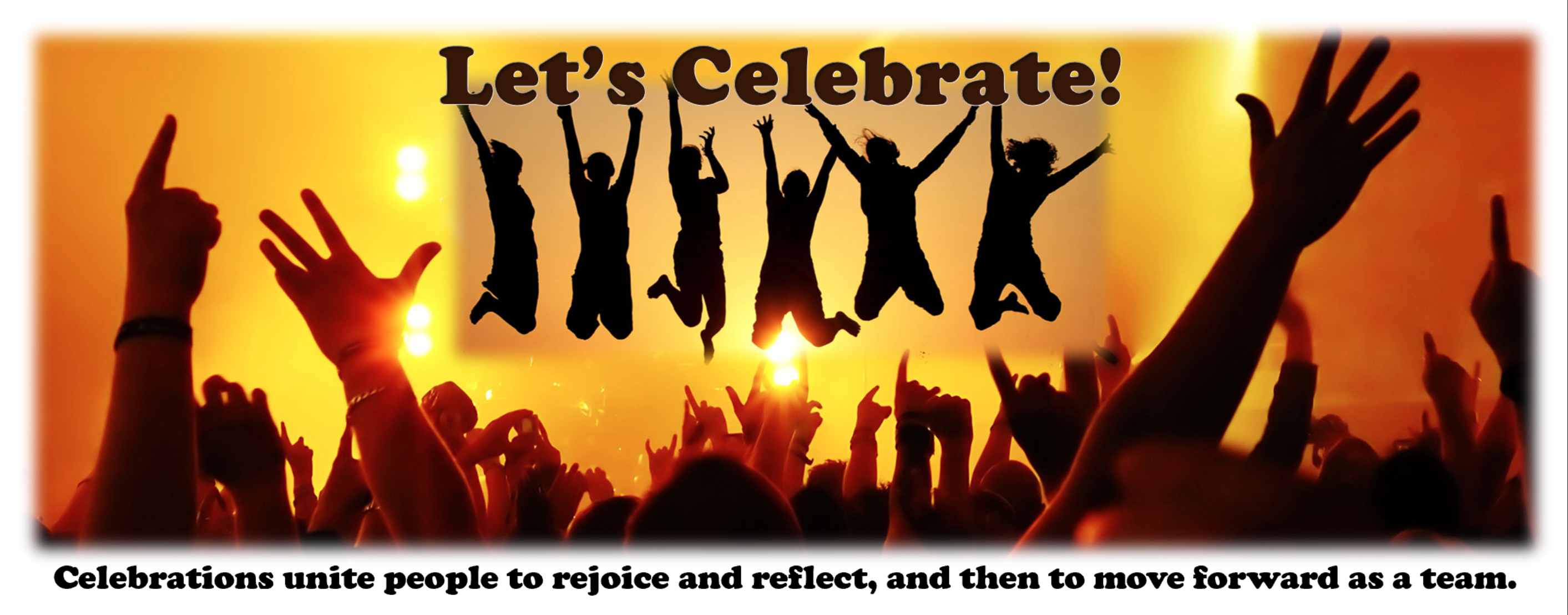
While doing this I am going to introduce a new part to our context....Celebrating our NZ Culture!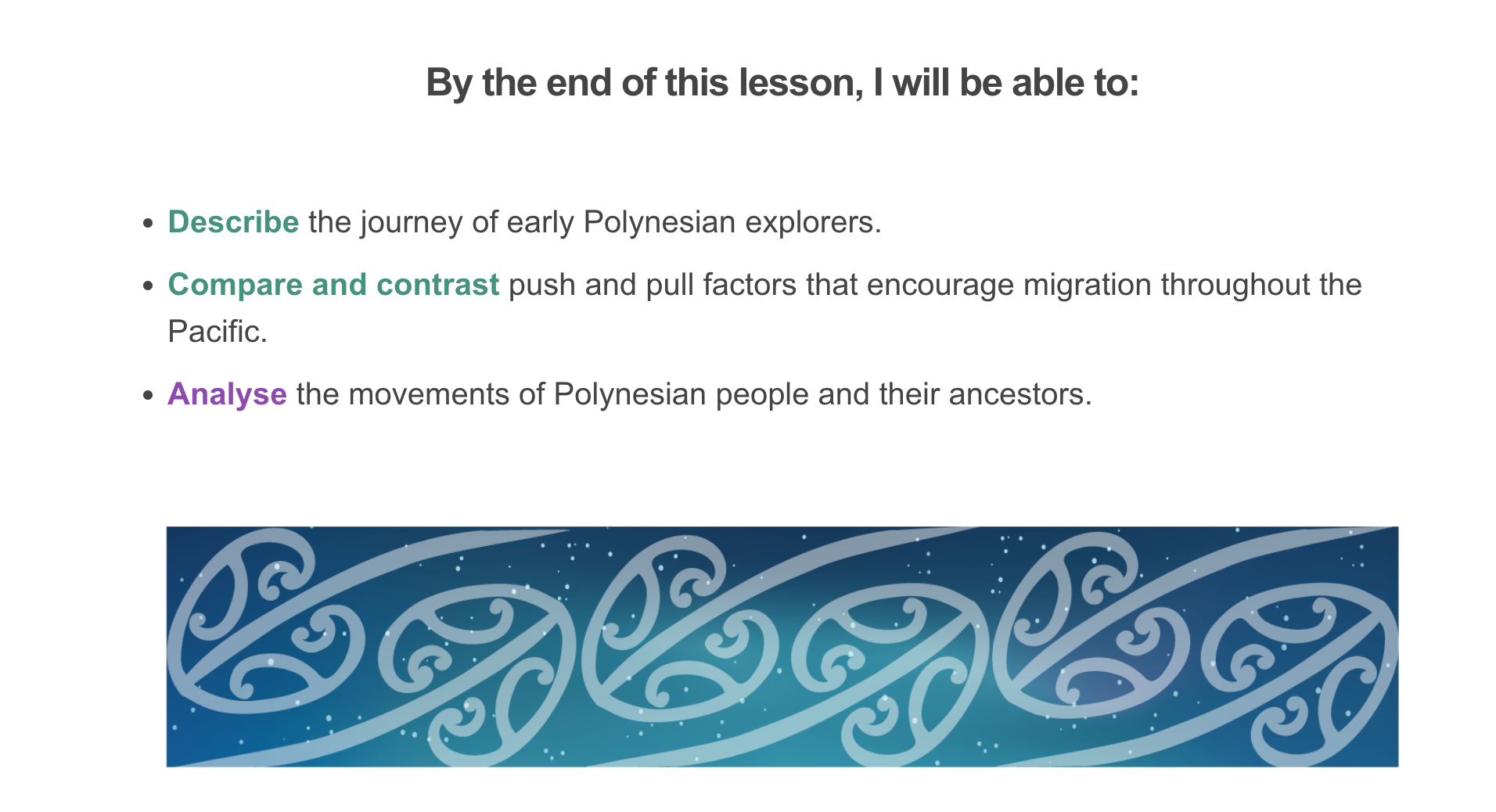
Please complete the assigned task on Education Perfect.
https://app.educationperfect.com/app/dashboard/homework/7347720
Extra resources:
https://nzhistory.govt.nz/culture/encounters/polynesian-voyaging
-
For the purpose of this assessment you will create a poster combining your learning about the UN Goals with your learning in English. This is a combined English/Global Studies Assessment task.
-
Kia ora 7C2,
This week is going to be a bit different......
- During our session on Monday- we will be sorting out all the donoations for the Auckland City Mission and the SPCA - and packing them into boxes.
- On Tuesday and Thursday we will be making lolly lays as gifts for our year 10 students. These will be presented to them at our farewel assembly on 1 December.
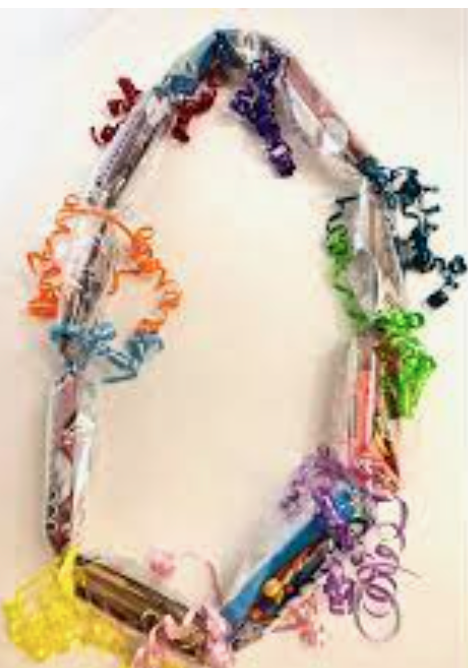
-
Kia ora 7C2,
This week we will be completing your presentations of your family Celebration that you and your buddy/buddies have decided to share with the class. Once we've completed that - as discussed in class -we are going to research worldwide celebrations.
EXPLORE / TŪHURA learning intentions:
- We are EXPLORING... by researching a worldwide celebration to gain a deeper understanding of celebrations around the world.
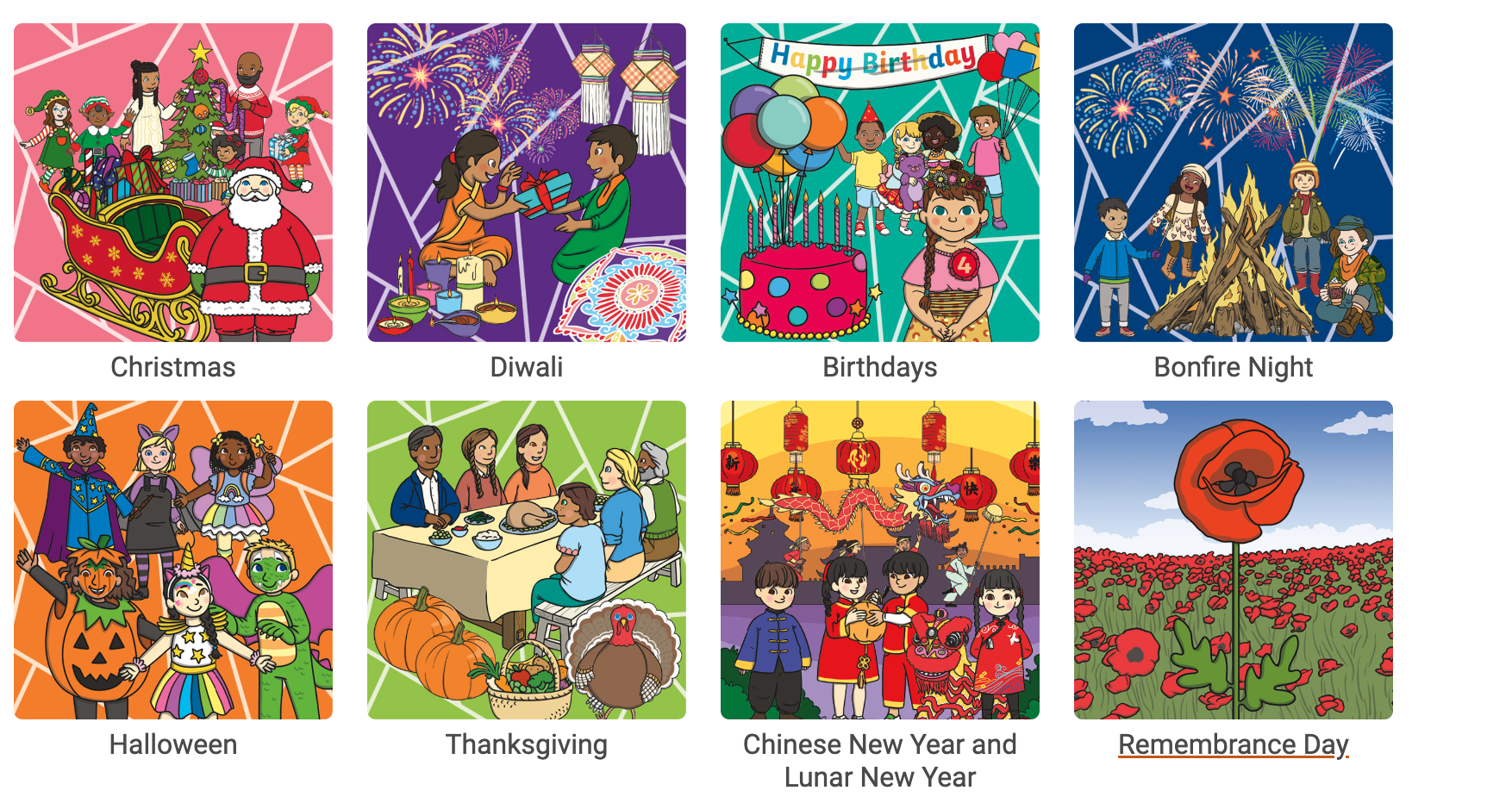
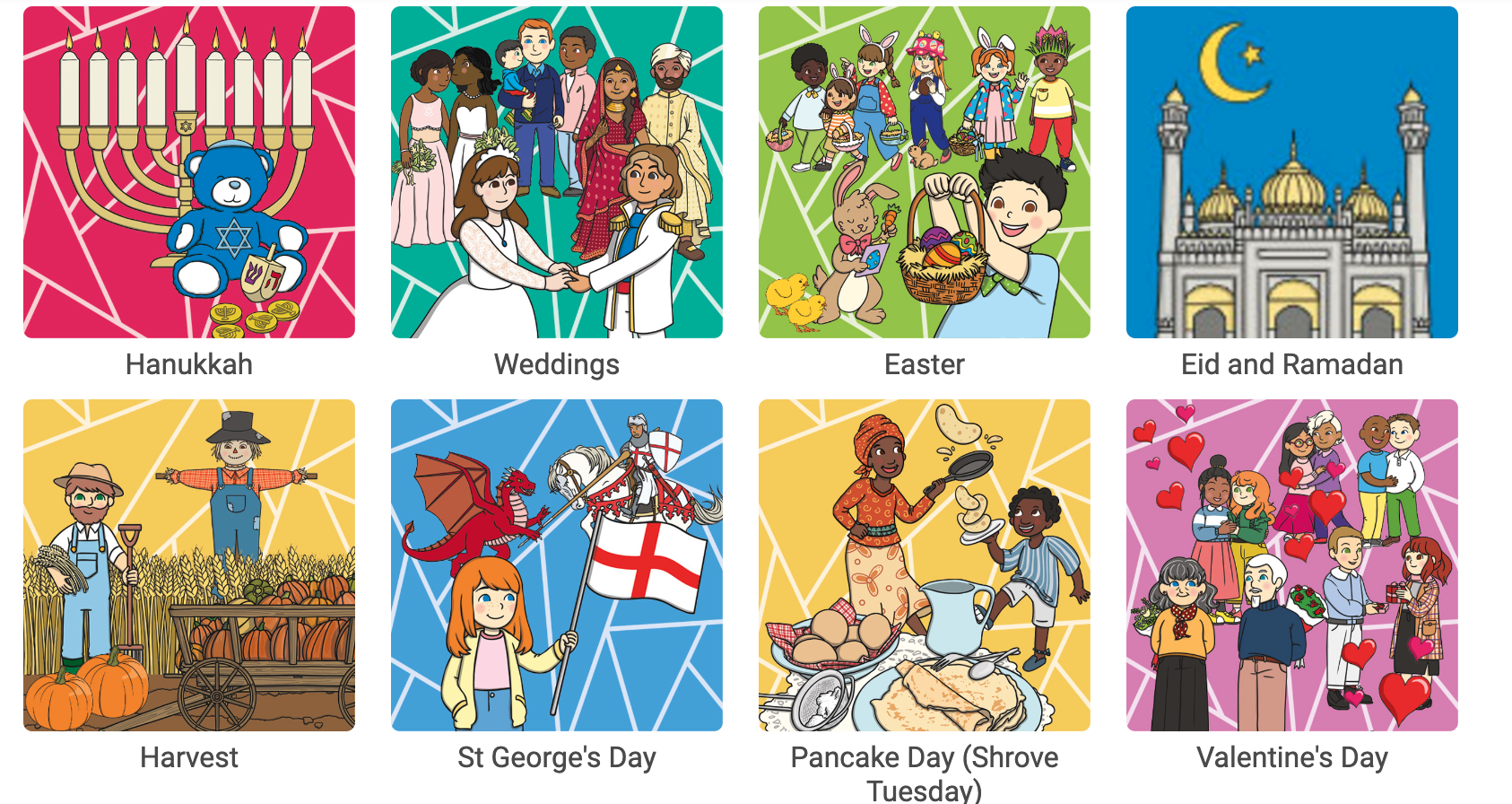

Success Criteria: I can/have...
- Identify a celebration
- Use my research skills to explain the celebration
Activities:
- Working in pairs randomly select a celebration to research with your partner
- Come up with a creative way to teach/explain to the class what your celebration is abour, who celebrates it and why.
Homework:
- Education Perfect activity based on Multi-culturalism
- We will discuss how this impacts on Worldwide Celebrations

